- Powerboat courses
Ideal for short passages and exploring your local waters, make the most of your time afloat with our powerboat courses
Powerboating offers the best of both worlds, the leisurely pace of a gentle cruise and the thrill of zipping across the open water. RYA training will give you the confidence and skills to handle the boat safely and make the most of your time on the water, whatever your pace.
As well as courses for recreational boaters, RYA powerboat certificates are also used by professional open boat skippers who need to prove their competence or require professional qualifications for work.
So whether you use powerboats for leisure, work, or in connection with another activity such as sailing or rescue, we have a course for you. Find out more about our powerboat courses below.
The National Powerboat scheme is comprised of a series of one and two-day practical courses that can be taken either onboard a centre’s boat, or your own. There’s something for all ages and levels of experience.
A one-day introduction to simple boat handling and the use of safety equipment.
A two-day course to get to grips with powerboat handling.
Two days of practical pilotage, passage planning and navigating by day.
Two days of planning and navigating more challenging passages by day and night.
Two days of hands-on recovery and fleet management techniques for dinghies and windsurfers for those operating in a training or racing environment.
This two-day course builds upon Level 2 Powerboat Handling skills, focussing on short-handed operations, passenger safety and comfort. Designed in consultation with the Professional Yachting Association (PYA).
Increase your confidence and get qualified with our navigation and specialist short courses.
A basic introduction to navigation for new skippers, crew or anyone interested in getting out on the water.
Get qualified to use a handheld or fixed marine VHF radio with our course and exam.
From first aid to diesel engine, there are a number of related classroom and online courses you may find useful as you develop your knowledge.
Test your skill, knowledge and experience as a powerboat skipper by taking the RYA/MCA Advanced Powerboat exam.
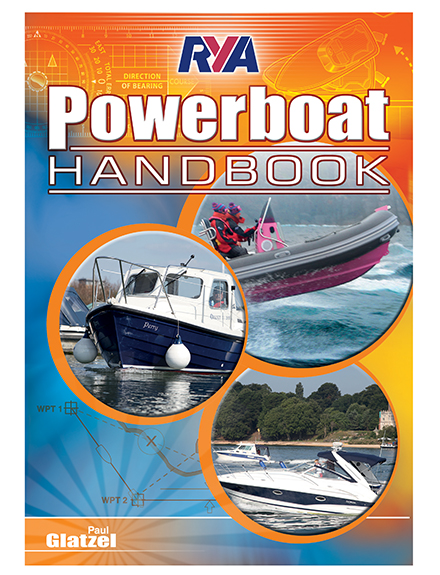
With more than 100 different titles to choose from, there’s an RYA book, eBook or audiobook for every age, interest and ability. Visit our webshop for course books and a range of supporting titles.
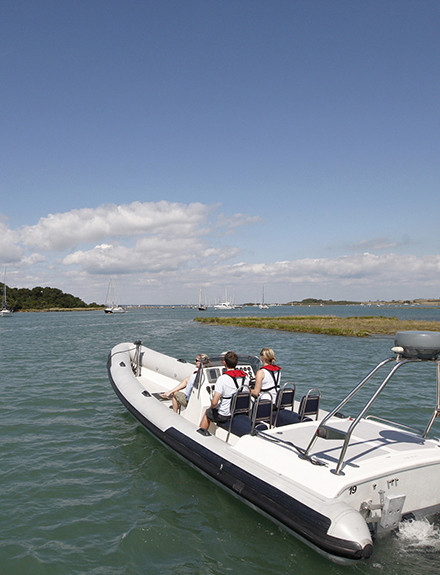
If you want to go powerboating overseas, you’re likely to need an ICC. The Level 2 Powerboat Handling certificate can be used as evidence of your competence.
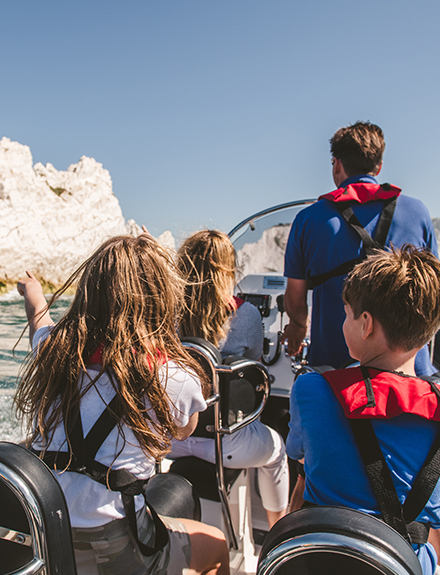
Powerboating can be great fun for the whole family and there are plenty of opportunities for young people to get involved. Check our course descriptions for minimum age recommendations.
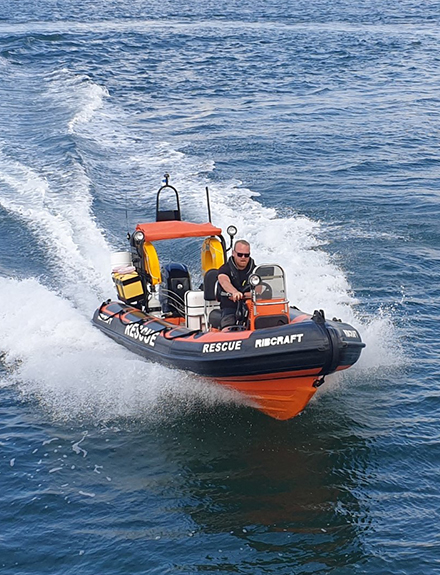
If you need a powerboat qualification for work, you might need a commercial endorsement. Find out more about professional qualifications and what it takes to work on the water.
- View all courses
- Taught postgraduate study
- Postgraduate taught degree courses
- Postgraduate taught tuition fees
- Pre-masters for international students
- Funding your postgraduate taught studies
- How to apply for a postgraduate taught degree
- Postgraduate offer holders - prepare for your studies
- Pre-sessional English courses
- PhDs and research degrees
- Create your own research project
- Find a PhD project
- Funding your research degree
- How to apply for a PhD or research degree
- How to make a PhD enquiry
- Support while studying your PhD or research degree
- Exchanges and studying abroad
- Undergraduate study
- Undergraduate degree courses
- Foundation year programmes
- Undergraduate tuition fees
- Customise your degree
- Funding undergraduate studies
- How to apply
- Tuition fees and funding
- Short courses
- Lunchtime evening and weekend courses
- Summer schools
- Get a prospectus
- Student life
- Accommodation
- Choose your halls of residence
- Apply for accommodation
- Guaranteed accommodation
- Your accommodation options
- Accommodation for those with additional requirements
- International and pre-sessional students
- Postgraduate accommodation
- Couples and students with children
- Renting privately
- Our accommodation areas
- Privacy notice
- Terms and conditions
- Fees and contracts
- Southampton
- Sports and gyms
- Sports facilities
- Sports clubs
- Watersports centres
- Our campuses
- Avenue Campus
- Boldrewood Innovation Campus
- City Centre Campus
- Highfield Campus
- University Hospital Southampton
- Waterfront Campus
- Winchester Campus
- Join our student community
- What's on
- Clubs and societies
- Sports teams
- SUSU places
- Representing you
- SUSU support and advice
- Support and money
- Living costs
- Academic and mental health support
- Support for disabled students
- Part-time work
- Health services
- Research projects
- Research areas
- Research facilities
- Collaborate with us
- Institutes, centres and groups
- Support for researchers
- Faculties, schools and departments
- Research jobs
- Find people and expertise
- Why work with us?
- Collaboration
- Consultancy
- Commercialisation
- Use our facilities
- Connect with our students
- How we operate
- Make a business enquiry
- International students
- International Office
- Partnerships and initiatives
- Visiting delegations
- Visiting fellowships
- University of Southampton Delhi
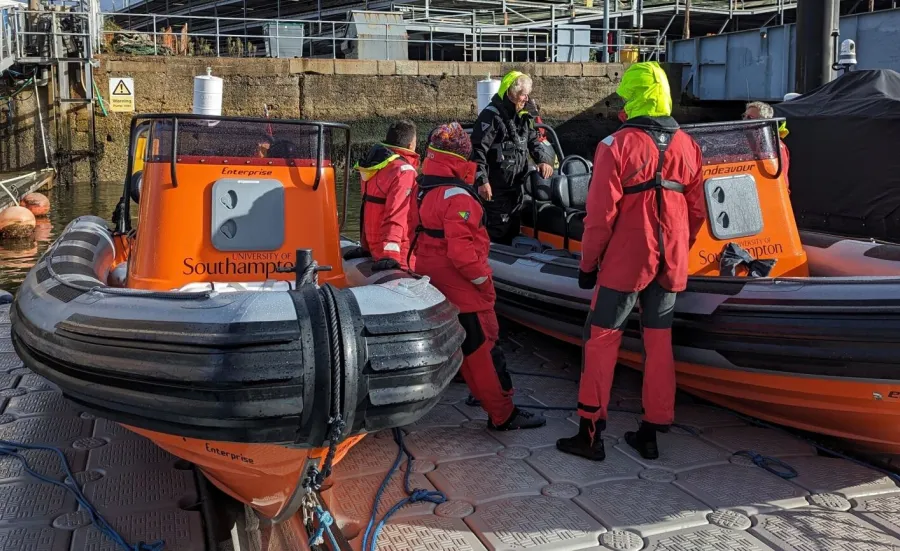

RYA Powerboat Level 2
This 2 day course is the benchmark for powerboating qualifications across the world. No existing skills are needed. This course will help you become a fully self sufficient powerboater.
About the course
The Royal Yachting Association (RYA) National Powerboat Scheme is for drivers of craft up to 33ft (10 metres), without a galley or toilet on board. These qualifications are recognised around the world and can be beneficial if you’re looking to drive commercially.
You do not need any prior knowledge of boat handling to join this Level 2 course. Our instructors will introduce you to a range of slow and fast manoeuvres and help you to get comfortable with how the craft handles.
After completing this course, you’ll be a self-sufficient powerboater. You’ll be comfortable reading the conditions, and handling the craft within its limitations and your own. You’ll also be able to apply for an International Certificate of Competence (ICC) , allowing you to operate boats and pleasure craft abroad.
Powerboat Level 2 courses run on a maximum ratio of 1 instructor to 3 students.
What to bring with you
- warm clothing
- comfortable closed toe shoes that can get wet or wellies if it’s predicted to rain
- lunch and any snacks (the canteen is not open at weekends)
- water bottle
- sunscreen and sunglasses
What we provide
- life jackets
- waterproof jackets and trousers
- certificates upon successful completion
Logbooks are available to purchase.
Dates and times
All courses are taught on a Saturday and Sunday from 9am to 5pm.
- 13 and 14 July
- 27 and 28 July
- 10 and 11 August
- 24 and 25 August
- 14 and 15 September
- 28 and 29 September
- 12 and 13 October
- 26 and 27 October
- 16 and 17 November
- 7 and 8 December
- 11 and 12 January
- 8 and 9 February
- 22 and 23 February
- 8 and 9 March
- 15 and 16 March
- 22 and 23 March
- 5 and 6 April
- 10 and 11 April
- 19 and 20 April
- 24 and 25 April
- 3 and 4 May
- 8 and 9 May
- 31 May and 1 June
- 14 and 15 June
- 19 and 20 June
- 28 and 29 June
- 12 and 13 July
- 26 and 27 July
- 9 and 10 August
- 23 and 24 August
- 28 and 29 August
- 6 and 7 September
- 20 and 21 September
- 4 and 5 October
- 9 and 10 October
- 18 and 19 October
- 23 and 24 October
- 1 and 2 November
- 15 and 16 November
- 20 and 21 November
- 29 and 30 November
- 13 and 14 December
Our courses are available to everyone, but Southampton Sport members can book at a discounted rate.
Membership type
Southampton Sports Membership
Mayflower Member, Sports Pass or Non-Member
Booking a course
Book your course online
You can also:
- book by phone : +44 (0)23 8059 2119
- book by email : [email protected]
- book in person at Jubilee Sports Centre
Cancelling or rescheduling a course
You can cancel or reschedule a booking by contacting the Jubilee Sports Centre . Your options depend on how much notice you give us. Notice periods are based on the date of your booking, not on the start time.
Notice given
Refund options
7 days or more
Full refund or reschedule to another date
Between 48 hours and 7 days
Full refund if you present a doctor’s note stating why you can't complete your booking
Less than 48 hours
No refund available
When we might cancel your booking
We might need to cancel a booking if:
- the weather means we cannot safely run a course
- staff members are sick and their absence cannot be covered
- we cannot meet our minimum student-instructor ratio
If we need to cancel your booking, we’ll always try to give you at least 24 hours' notice. We’ll also offer to reschedule your booking.
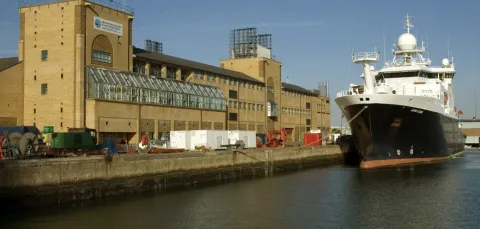
National Oceanography Centre
- Course modules
- Acoustical engineering
- Biomedical and medical engineering
- Civil engineering
- Every day I’m completely immersed in an environment that’s creative in all aspects
- Everything I learn feels so relevant, even If it’s a subject rooted in the past
- Maritime engineering
- Photonics and optoelectronics
- Social statistics and demography
- A missing link between continental shelves and the deep sea: Have we underestimated the importance of land-detached canyons?
- A seismic study of the continent-ocean transition southwest of the UK
- A study of rolling contact fatigue in electric vehicles (EVs)
- Acoustic monitoring of forest exploitation to establish community perspectives of sustainable hunting
- Acoustic sensing and characterisation of soil organic matter
- Advancing intersectional geographies of diaspora-led development in times of multiple crises
- Aero engine fan wake turbulence – Simulation and wind tunnel experiments
- Against Climate Change (DACC): improving the estimates of forest fire smoke emissions
- All-in-one Mars in-situ resource utilisation (ISRU) system and life-supporting using non-thermal plasma
- An electromagnetic study of the continent-ocean transition southwest of the UK
- An investigation of the relationship between health, home and law in the context of poor and precarious housing, and complex and advanced illness
- Antibiotic resistance genes in chalk streams
- Being autistic in care: Understanding differences in care experiences including breakdowns in placements for autistic and non-autistic children
- Biogeochemical cycling in the critical coastal zone: Developing novel methods to make reliable measurements of geochemical fluxes in permeable sediments
- Bloom and bust: seasonal cycles of phytoplankton and carbon flux
- British Black Lives Matter: The emergence of a modern civil rights movement
- Building physics for low carbon comfort using artificial intelligence
- Building-resolved large-eddy simulations of wind and dispersion over a city scale urban area
- Business studies and management: accounting
- Business studies and management: banking and finance
- Business studies and management: decision analytics and risk
- Business studies and management: digital and data driven marketing
- Business studies and management: human resources (HR) management and organisational behaviour
- Business studies and management: strategy, innovation and entrepreneurship
- Carbon storage in reactive rock systems: determining the coupling of geo-chemo-mechanical processes in reactive transport
- Cascading hazards from the largest volcanic eruption in over a century: What happened when Hunga Tonga-Hunga Ha’apai erupted in January 2022?
- Characterisation of cast austenitic stainless steels using ultrasonic backscatter and artificial intelligence
- Climate Change effects on the developmental physiology of the small-spotted catshark
- Climate at the time of the Human settlement of the Eastern Pacific
- Collaborative privacy in data marketplaces
- Compatibility of climate and biodiversity targets under future land use change
- Cost of living in modern and fossil animals
- Creative clusters in rural, coastal and post-industrial towns
- Deep oceanic convection: the outsized role of small-scale processes
- Defect categories and their realisation in supersymmetric gauge theory
- Defining the Marine Fisheries-Energy-Environment Nexus: Learning from shocks to enhance natural resource resilience
- Design and fabrication of next generation optical fibres
- Developing a practical application of unmanned aerial vehicle technologies for conservation research and monitoring of endangered wildlife
- Development and evolution of animal biomineral skeletons
- Development of all-in-one in-situ resource utilisation system for crewed Mars exploration missions
- Ecological role of offshore artificial structures
- Effect of embankment and subgrade weathering on railway track performance
- Efficient ‘whole-life’ anchoring systems for offshore floating renewables
- Electrochemical sensing of the sea surface microlayer
- Engagement with nature among children from minority ethnic backgrounds
- Enhancing UAV manoeuvres and control using distributed sensor arrays
- Ensuring the Safety and Security of Autonomous Cyber-Physical Systems
- Environmental and genetic determinants of Brassica crop damage by the agricultural pest Diamondback moth
- Estimating marine mammal abundance and distribution from passive acoustic and biotelemetry data
- Evolution of symbiosis in a warmer world
- Examining evolutionary loss of calcification in coccolithophores
- Explainable AI (XAI) for health
- Explaining process, pattern and dynamics of marine predator hotspots in the Southern Ocean
- Exploring dynamics of natural capital in coastal barrier systems
- Exploring the mechanisms of microplastics incorporation and their influence on the functioning of coral holobionts
- Exploring the potential electrical activity of gut for healthcare and wellbeing
- Exploring the trans-local nature of cultural scene
- Facilitating forest restoration sustainability of tropical swidden agriculture
- Faulting, fluids and geohazards within subduction zone forearcs
- Faulting, magmatism and fluid flow during volcanic rifting in East Africa
- Fingerprinting environmental releases from nuclear facilities
- Flexible hybrid thermoelectric materials for wearable energy harvesting
- Floating hydrokinetic power converter
- Glacial sedimentology associated subglacial hydrology
- Green and sustainable Internet of Things
- How do antimicrobial peptides alter T cell cytokine production?
- How do calcifying marine organisms grow? Determining the role of non-classical precipitation processes in biogenic marine calcite formation
- How do neutrophils alter T cell metabolism?
- How well can we predict future changes in biodiversity using machine learning?
- Hydrant dynamics for acoustic leak detection in water pipes
- If ‘Black Lives Matter’, do ‘Asian Lives Matter’ too? Impact trajectories of organisation activism on wellbeing of ethnic minority communities
- Illuminating luciferin bioluminescence in dinoflagellates
- Imaging quantum materials with an XFEL
- Impact of neuromodulating drugs on gut microbiome homeostasis
- Impact of pharmaceuticals in the marine environment in a changing world
- Impacts of environmental change on coastal habitat restoration
- Improving subsea navigation using environment observations for long term autonomy
- Information theoretic methods for sensor management
- Installation effect on the noise of small high speed fans
- Integrated earth observation mapping change land sea
- Interconnections of past greenhouse climates
- Investigating IgG cell depletion mechanisms
- Is ocean mixing upside down? How mixing processes drive upwelling in a deep-ocean basin
- Landing gear aerodynamics and aeroacoustics
- Lightweight gas storage: real-world strategies for the hydrogen economy
- Long-term change in the benthos – creating robust data from varying camera systems
- Machine learning for multi-robot perception
- Marine ecosystem responses to past climate change and its oceanographic impacts
- Mechanical effects in the surf zone - in situ electrochemical sensing
- Microfluidic cell isolation systems for sepsis
- Migrant entrepreneurship, gender and generation: context and family dynamics in small town Britain
- Miniaturisation in fishes: evolutionary and ecological perspectives
- Modelling high-power fibre laser and amplifier stability
- Modelling soil dewatering and recharge for cost-effective and climate resilient infrastructure
- Modelling the evolution of adaptive responses to climate change across spatial landscapes
- Nanomaterials sensors for biomedicine and/or the environment
- New high-resolution observations of ocean surface current and winds from innovative airborne and satellite measurements
- New perspectives on ocean photosynthesis
- Novel methods of detecting carbon cycling pathways in lakes and their impact on ecosystem change
- Novel technologies for cyber-physical security
- Novel transparent conducting films with unusual optoelectronic properties
- Novel wavelength fibre lasers for industrial applications
- Ocean circulation and the Southern Ocean carbon sink
- Ocean influence on recent climate extremes
- Ocean methane sensing using novel surface plasmon resonance technology
- Ocean physics and ecology: can robots disentangle the mix?
- Ocean-based Carbon Dioxide Removal: Assessing the utility of coastal enhanced weathering
- Offshore renewable energy (ORE) foundations on rock seabeds: advancing design through analogue testing and modelling
- Optical fibre sensing for acoustic leak detection in buried pipelines
- Optimal energy transfer in nonlinear systems
- Optimizing machine learning for embedded systems
- Oxidation of fossil organic matter as a source of atmospheric CO2
- Partnership dissolution and re-formation in later life among individuals from minority ethnic communities in the UK
- Personalized multimodal human-robot interactions
- Preventing disease by enhancing the cleaning power of domestic water taps using sound
- Quantifying riparian vegetation dynamics and flow interactions for Nature Based Solutions using novel environmental sensing techniques
- Quantifying the response and sensitivity of tropical forest carbon sinks to various drivers
- Quantifying variability in phytoplankton electron requirements for carbon fixation
- Resilient and sustainable steel-framed building structures
- Resolving Antarctic meltwater events in Southern Ocean marine sediments and exploring their significance using climate models
- Robust acoustic leak detection in water pipes using contact sound guides
- Silicon synapses for artificial intelligence hardware
- Smart photon delivery via reconfigurable optical fibres
- The Gulf Stream control of the North Atlantic carbon sink
- The Mayflower Studentship: a prestigious fully funded PhD studentship in bioscience
- The calming effect of group living in social fishes
- The duration of ridge flank hydrothermal exchange and its role in global biogeochemical cycles
- The evolution of symmetry in echinoderms
- The impact of early life stress on neuronal enhancer function
- The oceanic fingerprints on changing monsoons over South and Southeast Asia
- The role of iron in nitrogen fixation and photosynthesis in changing polar oceans
- The role of singlet oxygen signaling in plant responses to heat and drought stress
- Time variability on turbulent mixing of heat around melting ice in the West Antarctic
- Triggers and Feedbacks of Climate Tipping Points
- Uncovering the drivers of non-alcoholic fatty liver disease progression using patient derived organoids
- Understanding recent land-use change in Snowdonia to plan a sustainable future for uplands: integrating palaeoecology and conservation practice
- Understanding the role of cell motility in resource acquisition by marine phytoplankton
- Understanding the structure and engagement of personal networks that support older people with complex care needs in marginalised communities and their ability to adapt to increasingly ‘digitalised’ health and social care
- Unpicking the Anthropocene in the Hawaiian Archipelago
- Unraveling oceanic multi-element cycles using single cell ionomics
- Unravelling southwest Indian Ocean biological productivity and physics: a machine learning approach
- Using acoustics to monitor how small cracks develop into bursts in pipelines
- Using machine learning to improve predictions of ocean carbon storage by marine life
- Vulnerability of low-lying coastal transportation networks to natural hazards
- Wideband fibre optical parametric amplifiers for Space Division Multiplexing technology
- Will it stick? Exploring the role of turbulence and biological glues on ocean carbon storage
- X-ray imaging and property characterisation of porous materials
- Postgraduate Taught Diversity Scholarship (Environmental and Life Sciences)
- Southampton Business School Postgraduate UK Scholarship
- Southampton Genomics Talent Scholarship
- Southampton History Patricia Mather and Helen Patterson Scholarship
- Southampton MA Holocaust scholarships
- Southampton Philosophy David Humphris-Norman Scholarship
- Southampton UK Alumni Music Scholarship
- The National Institute for Health and care Research South Central INSIGHT Programme
- Winchester School of Art Progression Scholarship
- Southampton Physics and Astronomy Achievement Scholarship
- GREAT Scholarships 2024 – Greece
- Engineering Excellence Scholarship
- Winchester School of Art Postgraduate Global Talent Scholarship
- Engineering Global Talent Scholarship
- Southampton University Corporate Civil Engineering Scholarship Scheme
- Merit scholarships for international postgraduates
- Merit scholarships for international undergraduates
- Scholarships, awards and funding opportunities
- Becas Chile Scholarship
- Chevening Scholarships
- China Scholarship Council Scholarships
- COLFUTURO Scholarships
- Commonwealth Distance Learning Scholarships
- Commonwealth Master's Scholarships
- Commonwealth PhD Scholarships
- Commonwealth PhD Scholarships for high income countries
- Commonwealth Shared Scholarships
- Commonwealth Split-Site Scholarships
- FIDERH Scholarships
- Fulbright Awards
- FUNED Scholarships
- Great Scholarships 2024 – India
- Great Scholarships 2024 – Bangladesh
- Great Scholarships 2024 – Mexico
- Great Scholarships 2024 – Nigeria
- Marshall Scholarship
- Saïd Foundation Scholarships
- British Council Scholarships for Women in STEM
- Xiamen University PhD Scholarships
- GREAT scholarships for justice and law 2024 – Indonesia
- Scholarship terms and conditions
- Southampton Education Civic Scholarship
- Southampton Ageing and Gerontology Talent Scholarship
- Southampton Canadian Prestige Scholarship for Law
- Southampton Presidential International Scholarship
- Continuing professional development
- Archers Road
- City Gateway
- Erasmus Park
- Highfield Hall
- Orion Point
- Wessex Lane
- Cancer Sciences Protein Facility
- Geotechnical Centrifuge
- Maritime Robotics and Instrumentation Laboratory (MRIL)
- Active Living
- Advanced Fibre Applications
- Advanced Laser Laboratory
- Advanced Project Management Research Centre
- Antibody and Vaccine Group
- Astronomy Group
- Autism Community Research Network @ Southampton (ACoRNS)
- Bioarchaeology and Osteoarchaeology at Southampton (BOS)
- Bladder and Bowel Management
- Cell and Developmental Biology
- Centre for Defence and Security Research
- Centre for Developmental Origins of Health and Disease
- Centre for Digital Finance
- Centre for Eastern European and Eurasian Studies (CEEES)
- Centre for Empirical Research in Finance and Banking (CERFIB)
- Centre for Geometry, Topology, and Applications
- Centre for Global Englishes
- Centre for Global Health and Policy (GHaP)
- Centre for Health Technologies
- Centre for Healthcare Analytics
- Centre for Human Development, Stem Cells and Regeneration
- Centre for Imperial and Postcolonial Studies
- Centre for Inclusive and Sustainable Entrepreneurship and Innovation (CISEI)
- Centre for International Film Research (CIFR)
- Centre for International Law and Globalisation
- Centre for Internet of Things and Pervasive Systems
- Centre for Justice Studies
- Centre for Linguistics, Language Education and Acquisition Research
- Centre for Machine Intelligence
- Centre for Maritime Archaeology
- Centre for Medieval and Renaissance Culture (CMRC)
- Centre for Modern and Contemporary Writing (CMCW)
- Centre for Music Education and Social Justice
- Centre for Political Ethnography (CPE)
- Centre for Research in Accounting, Accountability and Governance
- Centre for Research on Work and Organisations
- Centre for Resilient Socio-Technical Systems
- Centre for Transnational Studies
- Child and Adolescent Research Group
- Clinical Ethics, Law and Society (CELS)
- Computational Nonlinear Optics
- Cyber Security Academy
- Data Science Group
- Digital Oceans
- EPSRC and MOD Centre for Doctoral Training in Complex Integrated Systems for Defence and Security
- Economic Theory and Experimental Economics
- Economy, Society and Governance
- Electrical Power Engineering
- Environmental Hydraulics
- Gas Photonics in Hollow Core Fibres
- Geochemistry
- Global Health (Demography)
- Global Health Community of Practice
- Gravity group
- Healthy Oceans
- High Power Fibre Lasers
- Hollow Core Fibre
- Human Genetics and Genomic Medicine
- Infrastructure Group
- Institute of Developmental Sciences
- Institute of Maritime Law (IML)
- Integrated Photonic Devices
- Integrative Molecular Phenotyping Centre
- Interdisciplinary Musculoskeletal Health
- International Centre for Ecohydraulics Research (ICER)
- Language Assessment and Testing Unit (LATU)
- Laser-Direct-Write (LDW) Technologies for Biomedical Applications
- Law and Technology Centre
- Long Term Conditions
- Magnetic Resonance
- Mathematical Modelling
- Medicines Management
- Molecular and Precision Biosciences
- Multiwavelength Accretion and Astronomical Transients
- National Biofilms Innovation Centre (NBIC)
- National Centre for Research Methods
- National Infrastructure Laboratory
- Nature-Based Ocean Solutions
- Nonlinear Semiconductor Photonics
- Ocean Perception Group
- Operational Research
- Optical Engineering and Quantum Photonics Group
- Paediatrics and Child Health - Clinical and Experimental Sciences
- People, Property, Community
- Photonic Systems, Circuits and Sensors Group
- Physical Optics
- Primary Care Research Centre
- Product Returns Research Group (PRRG)
- Quantum, Light and Matter Group
- Silica Fibre Fabrication
- Silicon Photonics
- Skin Sensing Research Group
- Southampton Centre for Nineteenth-Century Research
- Southampton Ethics Centre
- Southampton Health Technology Assessments Centre (SHTAC)
- Southampton High Energy Physics group
- Southampton Imaging
- Southampton Theory Astrophysics and Gravity (STAG) Research Centre
- Stefan Cross Centre for Women, Equality and Law
- String theory and holography
- The India Centre for Inclusive Growth and Sustainable Development
- The Parkes Institute
- Tony Davies High Voltage Laboratory
- Ultrafast X-ray Group
- Vision Science
- WSA Exchange
- Work Futures Research Centre (WFRC)
- Departments
- Professional qualifications
- powerboat-level-2
RYA Level 2 Powerboat Handling
RYA powerboat courses are primarily for those using small powered craft such as RIBs, dories and sportsboats that don't generally undertake long or offshore passages.
The types of commercial craft requiring this level certification are typically: charter fishing boats, small passenger launches, thrill ride operators, harbour patrol launches, construction site safety boats etc.
If you will be using larger boats with accommodation and the capacity to cruise or work further offshore you are likely to need a certificate within the motor cruising programme such as Day Skipper, Coastal Skipper or Yachtmaster Offshore.
If you need a Level 2 Powerboat Handling certificate in order to work on a commercial craft subject to the MCA's codes of practice, you will need to get it commercially endorsed . You can then work on commercial vessels up to 24m in length, operating in category 6 waters - that is up to 3 miles from a nominated departure point in fine weather and daylight hours.
| | |
| None. May be preceded by Level 1 Start Powerboating | |
| None | |
| All you need to know for self-sufficient powerboating at a basic level. Course includes launching, mooring, anchoring and recovery plus all the boat driving skills required for basic competence in a powerboat | |
| Self-sufficient powerboater in the right conditions, aware of own limitations and those of craft | |
| 2 day course or shorter assessment for experienced drivers (half to one day). | |
| For the Level 2 Powerboat Handling course the minimum age is 12, but a commercial endorsement cannot be obtained until the age of 17 |

Chieftain Training
RYA & STCW Courses – Sail, Power, Super-Yacht & Workboat

RYA Powerboat Level 2
Rya powerboat level 2 overview view dates.
The RYA Powerboat Level 2 Course (RYA PB2) offers a general introduction to power boating and teaches core boat handling and safety skills. The course is popular both with beginners and those who are self taught and now require formal certification.
The course is generally considered, the licence for powerboats. The qualification is widely recognised throughout the world. The Powerboat Level 2 (formerly known as the National Powerboat Certificate) covers everything in the RYA Powerboat Level 1 and a lot more.
HOW LONG DOES THE RYA POWERBOAT LEVEL 2 COURSE TAKE?
The RYA PB2 course takes two days
WHAT ARE THE PRE REQUISITES FOR RYA POWERBOAT LEVEL 2 ?
- No previous experience required
- Minimum age of 12 years**
**Under 16s are advised, “Not be in charge of a powerboat unless under the supervision of a responsible adult”. We run separate Junior Powerboat Courses.
WHAT IS COVERED ON THE RYA POWERBOAT LEVEL 2 COURSE?
This course is largely practical onboard the powerboat. There are some short theory sections to complete.
The course provides everything you need to get started with an emphasis on you becoming confident and competent at boat handling and being aware of the associated safety consideration and equipment. The RYA Powerboat Level 2 is broadly equivalent to a series of driving lessons, but a lot more fun.
The RYA Powerboat Level Two will prepare you for driving a powerboat unsupervised with confidence. While primarily a boat handling (parking) course you may consider following it up with the RYA Powerboat Intermediate Course which covers high speed navigation and passage making in far more detail.

RYA PB2 Training at Chieftain Training is comprehensive. We aim to make life as easy as possible for our students and provide the following within the course:
- 2 days of instruction
- Use of our RIB (rigid inflatable boat)
- Loan of a life jacket
- RYA Powerboat Level 2 Certificate
- RYA Start Powerboating Handbook
- Free on street parking
- 1 year free subscription to Powerboat & RIB Magazine
NOT INCLUDED
- Wet weather gear (this can be hired for £5 a day)
- Lunch (Can be bought locally, but we recommend you bring a packed lunch)
OPTIONAL EXTRAS
International certificate of competence.
If you require a powerboat licence for driving in other European countries, we can take care of the paperwork for your ICC (International Certificate of Competence) , which is subject to a small RYA administration fee for non-RYA members, or is free for RYA members.
Fast Track 1:1 day for experienced drivers
If you already have experience as a powerboater, need to gain your Level 2 certifIcate and don’t wish to undertake the introductory elements of the Level 2 course, you can instead attend a shorter 1:1 course which consists of the relevant coaching and a direct assessment. Please contact us to find out more.
“Teen” Powerboat Level 2 (RYA PB2) courses
Lets face it, our kids probably have more fun without us around. 12-15 years old can join our Youth Powerboat Level 2 Course . They receive the same course, however they will be learning with other 12-15 year olds.
“Family” Powerboat Level 2 courses
If you have just bought a new boat why not train together as a family. We train upto 3 of you together or can spread a larger family across 2 boats. Full information is at Family Level 2 Courses .
Own Boat Tuition
We can run this course on board your own boat. We can train 1-3 of you at a time and bespoke the course around your boat and your likely usage.
WHAT RATIO IS RYA POWERBOAT LEVEL 2 TAUGHT TO?
This course will run with no more than 3 students per boat and Instructor, sometimes less.
HOW LONG IS THE RYA POWERBOAT LEVEL 2 CERTIFICATE VALID FOR?
The RYA Powerboat Level 2 certificate does not expire. Drivers who qualified some time ago and for whatever reason did not make use of their training are advised to refresh by re-attending the course. If you choose to commercially endorse the PB2, then your Commercial Endorsement will expire after 5 years.
BOOKING THE COURSE:
The Powerboat Level Two course is run every weekend and frequently during the week. If you can’t find a suitable date from the list, please contact us and we will do our best to arrange a convenient date.
We can also run the course 1:1 at a time that best suits you and even on your own boat, if you would prefer. Please contact us for details of own boat tuition.
IS THE POWERBOAT LEVEL 2 COURSE FOR ME?
Wondering if this is the course for you? The RYA Powerboat Level 2 course is suitable for a wide range of people, from beginners wanting to gain skills and improve confidence, to those with a bit more experience looking to gain their powerboat ‘licence’. Some people’s aim is simply to be able to drive a speedboat for fun, others look to use the skill as a vehicle for their sport or job. This course might appeal to:
- Water-skiiers
- Wake-boarders
- Lifeboat crew
- Super-yacht deck crew who will drive the tender
- Powerboat owners
- Offshore wind farm crew
- Harbour masters, police
- Safetyboat crew and cox’ns
- Lifeboat volunteers
If you are unsure as to whether the Level Two course is the one for you, please don’t hesitate to contact one of our course advisors to discuss your options in detail.
RYA POWERBOAT LEVEL 2 DIRECT ASSESSMENT
If you have existing experience of power-boating and require a Level 2 Certificate then there is the option to attend a bespoke direct assessment. This option will save you time versus attending a two day course but is reserved for those with existing experience.
Half day RYA Powerboat Level 2 Direct Assessment
The Instructor will expect you to perform the following manoeuvres
- Holding Off
- Departing from and returning to an alongside berth in various states of wind and/or tide
- Turn using warps
- Picking Up a Mooring
- Turning in a confined space
- Planing speed handling
You will also need to answer oral questions on the following subjects
- Safety equipment
- Sources of weather info
- Basic chartwork / passage planing
One Day RYA Powerboat Level 2 (PB2) Direct Assessment
If some of the above skills are a little out of practice then we can offer you a bespoke one-day 1:1 option (for experienced power-boaters only). We conduct your 1:1 direct assessment in the afternoon, but before that, our Instructor spends the morning with you coaching those skills/knowledge which are a little rusty.
Direct assessments are bespoke, please contact us to arrange.
BOOKING THE RYA POWERBOAT LEVEL 2 COURSE:
If the dates below do not suit you we can set up a bespoke 1:1, 2:1 or group course at a time that suits you.
Share this:
- ☰ Menu
- Visiting Us
- About the RVYC
- The Club House
- On the Water
- Club Racing
- Open Events
- Youth Dinghy Championships at RVYC
- Merrydown Regatta: 29th September 2024
- 4 Courses...
- 2 PB2 and Safety Boat Courses...
-RYA Powerboat Level 2
- PB2 Pre-Course Information
- RYA First Aid Course
RYA Level 2 Powerboat Handling
Provides the skills and background knowledge needed by the competent powerboat driver and is the basis of the International Certificate of Competence. It aims to teach boat handling and seamanship in powerboats. It focuses on low speed close quarters handling, man overboard recovery, an introduction to driving at planing speed, and collision regulations. The course can be taken inland or on the coast and your certificate will be endorsed accordingly. The course may be conducted in a variety of boat types, both planing and displacement, and the certificate issued will be endorsed to show the type of boat in which the training took place.
Assumed knowledge: None. May be preceded by Level 1 Start Powerboating Minimum duration: 2 days Minimum age: 12 (candidates under the age of 16 will be issued with an endorsed certificate) Course content: Launching and recovery, boat handling, securing to a buoy, anchoring, leaving and coming alongside, man overboard Ability after course: Self-sufficient powerboater in the right conditions, aware of own limitations and those of the craft
Course material included are : Logbooks G20 & G48 and certificate upon completion
2024 Courses: June course is now full & 19th and 20th October
Cost: Members: GBP190 Non members ; GBP 290 Max number per course is 9
Instructor to student ratio 1:3
PB2 online booking form .
Poster and paper based booking form are in the downloads section below.
Pre-course information here .

Last updated 15:38 on 10 September 2024

| 91 Fishbourne Lane Phone : 01983 882325 Tax No. 107847361 |
Got a Question?
Complete our short form for a prompt response and world class tax advice.
Yes please contact me regarding mortgages
By selecting this, you agree to the Privacy Policy .
Sign in to your account
Rya powerboat level 2 certificate - a must for yacht captains.

For a lot of yacht captains, navigating the vast expanse of open waters is more than a skill; it's a calling.
However, their role extends far beyond mere navigation and steering.
The open sea demands proficiency in a myriad of maritime competencies.
This is where the Royal Yachting Association (RYA) Powerboat Level 2 Certificate steps in as a vital asset for every yacht captain.
Beyond being a skipper, this certification opens the gateway to a comprehensive range of practical boating proficiencies that can fundamentally transform your capabilities at the helm, and is needed to advance past the basics of yachting .
It's not just about steering; it's about becoming a captain of enhanced competence and confidence, ready to handle any situation that comes your way.
What is the RYA Powerboat Level 2 Certificate?
Why rya powerboat level 2 certification is important, how to get rya powerboat level 2 certification, how long does rya powerboat level 2 certification take, how much does rya powerboat level 2 certification cost, what job roles does rya powerboat level 2 certification open up.
Yacht captains shoulder the immense responsibility of ensuring the safety and well-being of their vessel and all those who embark upon it.
This encompasses far more than steering a yacht through tranquil waters; it involves the mastery of a diverse array of maritime skills.
The RYA Powerboat Level 2 Certificate is precisely designed to arm you with these essential skills, transforming you into a captain capable of confidently navigating various scenarios that might arise on the open waters.
With this certification, you'll be equipped to adeptly manage challenging situations, whether you're manoeuvring into a bustling marina with finesse or swiftly responding to unforeseen emergencies.
The RYA Powerboat Level 2 Certificate isn't just about bolstering your practical capabilities; it's about instilling in you the competence and readiness to tackle the unexpected and maintain the safety and security of your vessel and its passengers.

The importance of the RYA Powerboat Level 2 Certificate for yacht captains cannot be overstated.
As the commanding figures of vessels, yacht captains bear an enormous responsibility for the safety and well-being of both their craft and its occupants.
However, their role goes beyond merely navigating the seas – it involves having a multifaceted skill set that can swiftly and decisively address a myriad of scenarios that may unfold on the open waters.
The RYA Powerboat Level 2 Certificate is a formidable tool in the captain's toolkit, enriching them with a range of essential proficiencies that transcend the conventional roles of steering and anchoring, and is needed to become a yacht captain .
This certification instils in yacht captains the confidence and aptitude to proficiently manage diverse situations.
Be it the meticulous manoeuvring required when docking in a bustling marina or the swift, composed response demanded by unexpected emergencies, this certificate ensures that yacht captains are well-equipped to navigate such challenges without faltering.
Moreover, the RYA Powerboat Level 2 Certificate bolsters yacht captains' existing capabilities, enabling them to be adaptable and proactive leaders.
By honing skills like close-quarters handling, rescue techniques, and navigation in various conditions, this certification transforms captains into seasoned experts capable of steering their vessels and crews through an array of conditions and complexities.
Acquiring the RYA Powerboat Level 2 Certificate involves a structured process that equips individuals with the comprehensive skill set needed to confidently navigate the waters as a yacht captain.
To embark on this journey, aspiring candidates must engage with a certified RYA training centre, which serves as the gateway to acquiring this coveted credential.
The training course is the cornerstone of the certification journey.
Delivered by experienced and knowledgeable instructors, the course is designed to impart a blend of theoretical knowledge and hands-on practical skills that mirror the challenges yacht captains may encounter while at the helm.
Throughout the course, participants will delve into an array of essential subjects that go beyond mere navigation, including seamanship, safety procedures, and practical boat handling.
During the practical training phase, participants gain invaluable experience by actively manoeuvring powerboats in diverse conditions and scenarios.
From perfecting docking techniques to mastering boat control, this immersive aspect of the training allows candidates to bridge the gap between theory and real-world application.
Understanding the intricacies of navigation is crucial not only for safe travels but also for efficient route planning and decision-making in different situations.
Participants in the RYA Powerboat Level 2 training delve into safety training that encompass everything from emergency procedures and proper use of safety equipment to effective communication protocols when dealing with potential risks on the water.
Integral to the certification process is the assessment phase, which evaluates candidates' skills, knowledge, and overall preparedness.
This evaluation typically takes place at the conclusion of the training course and encompasses both practical and theoretical components.
Successful completion of this assessment is a significant milestone on the path to achieving the RYA Powerboat Level 2 certificate.
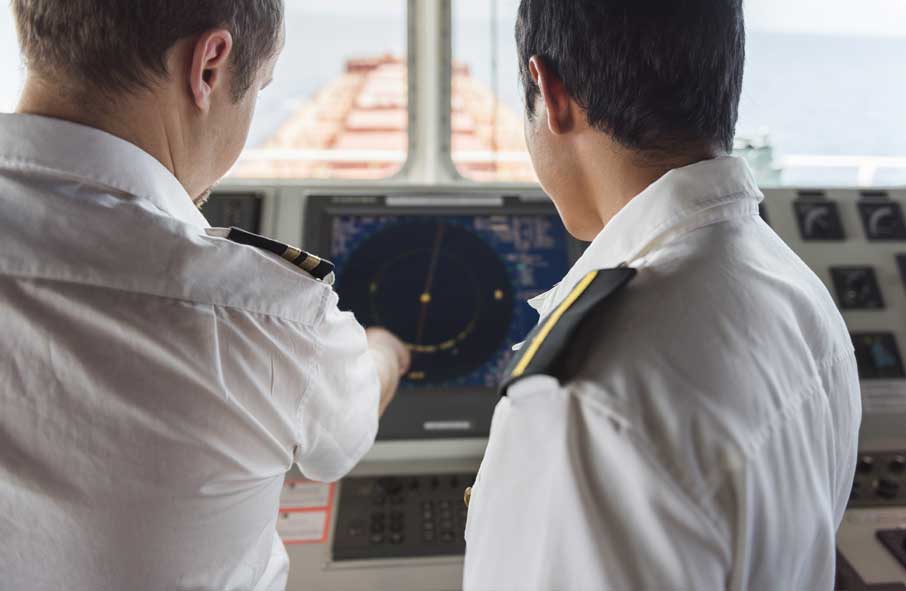
The timeline to attain the RYA Powerboat Level 2 Certificate is a consideration that often aligns with the demanding schedules of yacht captains and maritime professionals.
This certificate can be achieved within a relatively short span, making it an accessible and feasible endeavour for those in the industry.
The duration of the RYA Powerboat Level 2 course may vary slightly based on factors such as the specific training centre and the structure of the program.
However, a general overview reveals that the course is typically designed to be completed over a concise timeframe.
Most training centres offer a streamlined curriculum that condenses essential theoretical knowledge and hands-on practical skills into a well-structured course.
On average, candidates can expect to invest around two to three days of training to earn the RYA Powerboat Level 2 Certificate.
These compact sessions efficiently cover both the theoretical and practical aspects of the course.
This well-balanced approach ensures that participants not only gain a solid understanding of critical concepts related to boat handling, navigation, and safety but also have ample opportunity to apply this knowledge in real-life scenarios.
In general, prices for this certificate can vary depending on many factors, however on average it can cost between £200 and £350 .
When considering the cost of the RYA Powerboat Level 2 Certificate, it's important to recognise that the value it offers extends far beyond the financial aspect.
This certification opens a gateway to enhanced skills, improved competency, and heightened safety awareness in the maritime domain, making it an investment that holds profound significance for yacht captains and maritime professionals.
Training centres situated in different regions may have varying fee structures, and this can impact the overall cost of the course.
Additionally, the specific facilities, resources, the season, and the expertise of instructors provided by each training centre can influence the pricing.
It's advisable to conduct thorough research and explore different training centres to compare costs and assess the value they offer.
While prices may differ, prospective participants should bear in mind that the RYA Powerboat Level 2 Certificate is not just a financial transaction; it's an investment in one's professional growth and expertise, and when compared to how much a yacht captain can make, it is a wise investment.
On top of improving your own skillset and yacht captain earnings, there is also increased tax free income opportunities getting qualified presents as a yacht captain working at sea.
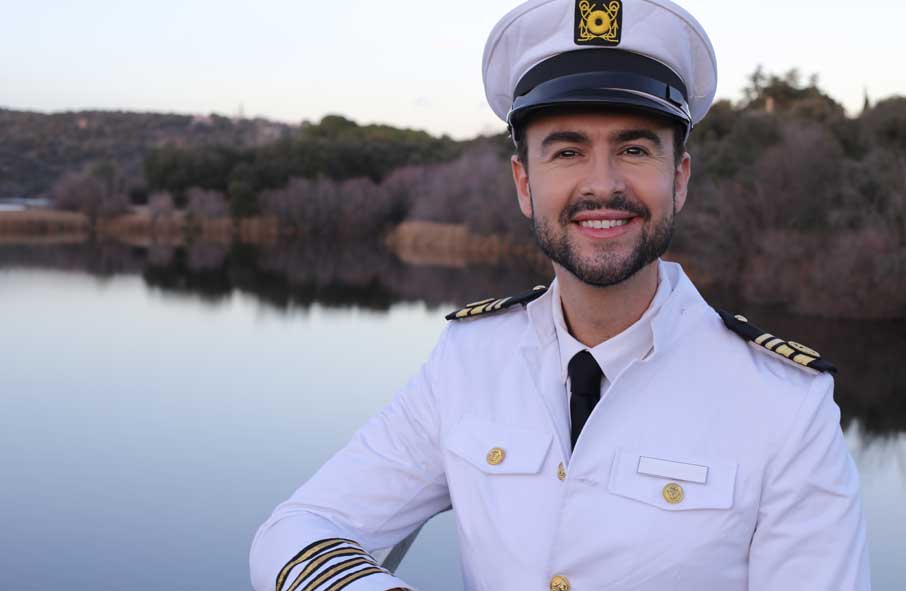
The RYA Powerboat Level 2 Certificate is more than just a credential; it acts as a key that can unlock a diverse array of careers in yachting and the maritime industry as a whole.
Beyond the realm of yacht captains, this certification paves the way for individuals to explore various roles and avenues, each contributing to the vibrant tapestry of maritime professions.
One notable avenue that the RYA Powerboat Level 2 Certificate opens up is powerboat instruction.
Armed with this qualification, you can delve into the world of teaching and training aspiring powerboat operators.
Your proficiency in handling powerboats and your familiarity with safety protocols can position you as an effective instructor, sharing your knowledge with individuals eager to learn the ropes of power-boating.
Additionally, the certificate can serve as a stepping stone to marine tourism roles.
With the ever-increasing popularity of marine-based tourism activities, such as snorkelling trips, sightseeing tours, and water-based adventures, your skills as a certified powerboat operator can be in high demand.
Your ability to navigate safely and efficiently can contribute to enhancing the experience of tourists and travellers while ensuring their safety on the water.
The realm of rescue services also presents an avenue for those holding the RYA Powerboat Level 2 Certificate.
Your expertise in operating powerboats can be a valuable asset in search and rescue missions, disaster relief efforts, and maritime emergency services.
Your proficiency in handling boats can play a pivotal role in swift and efficient response during critical situations, potentially making a life-saving impact.
Furthermore, possessing the RYA Powerboat Level 2 Certificate can open doors to roles in marina management and boat rental services.
Your skills can be particularly valuable in ensuring the safe and proper operation of rental boats, contributing to customer satisfaction and the smooth running of marina operations.
The versatility of this qualification cannot be overstated - it extends beyond the boundaries of a single job title, offering a passport to explore a range of maritime career paths.
The skills you acquire through this certification can be applied across various sectors, making you a valuable asset in any context that involves powerboat operation and safety.
Navigating the open waters demands more than just steering a yacht.
The RYA Powerboat Level 2 Certificate equips yacht captains with practical skills that enhance their effectiveness, safety, and credibility.
By undergoing this training, you're investing in your competency and ensuring the well-being of your crew and passengers. It's a must-have credential that can open doors to diverse career opportunities in the maritime world.
So, if you're a yacht captain looking to up your game, the RYA Powerboat Level 2 Certificate is the course to set your course for success.
For more info on tax deductibles available to a yacht captain whilst working at sea, check out our tax returns section .
If you have questions about a career in yachting, we want to hear from you.
Simply get in touch with us today or let us know your thoughts in the comments section below.
Disclaimer: Any advice in this publication is not intended or written by Marine Accounts to be used by a client or entity for the purpose of (i) avoiding penalties that may be imposed on any taxpayer or (ii) promoting, marketing or recommending to another party matters herein.
Before you go...
You're about to visit a page on our legacy site. We're currently in the process of updating all our tax tools and while this page is still active please return to the main Marine Accounts site after completition.
Refer a friend and receive £50!
Upon successful completion of the referral the cash will be transferred to you.

RYA Powerboat level II
The essential building block to a crew members boat handling ability.
Find out About the Power Boat Level II
Find a Power Boat Level II Training Provider
The Power Boat Level II is an essential course for deck crew working in the superyacht industry. It is also advisable for steward/stewardesses, and engineers to hold a powerboat license. This two-day entry-level course provides the skills and background knowledge needed to drive a powerboat in a safe and effective manner. The powerboat level II is a requirement for crew wishing to drive a superyacht tender up to 10m.
Course Breakdown
The majority of the course is practical with a short theory classroom session. The theory learning will continue during the practical training and assessment. The powerboat level II usually takes two days to complete, weather permitting. The topics covered are as follows:
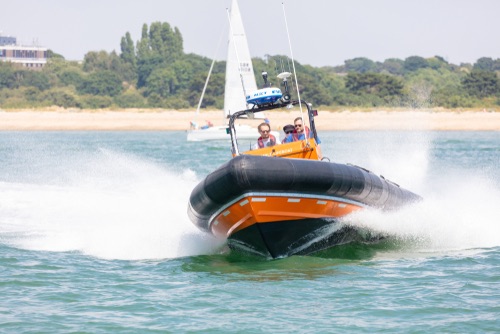
- Execution of class theory
- Launching and recovery
- Confined space maneuvering
- Man overboard procedure
- Engine checks
- High-speed handling
- Collision regulations
- Emergency procedures
- Basic chart work and navigation
- Briefing and practical overview
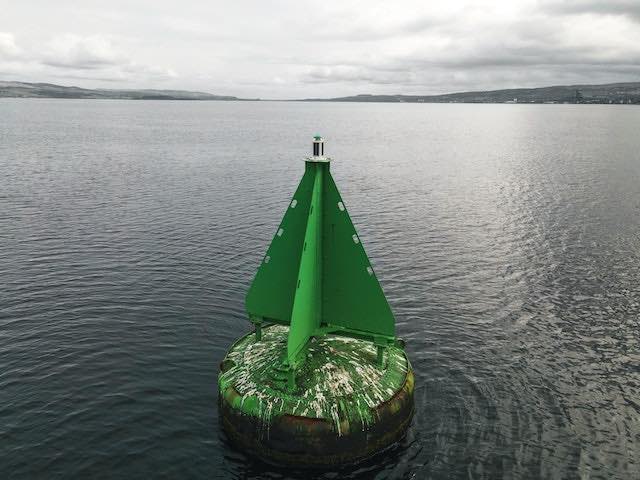
Powerboat Level 2 Certificate Outcome:
Apart from providing a strong base upon which powerboat handling skills can be built, the powerboat level 2 course is the basis for the ICC (International certificate of competence). A commercially endorsed power boat level II certificate can be used to transport guests and passengers, in tenders up to 10m in length.
The RYA Powerboat level II certificate does not have an expiry date.

Find a Training Centre:
Australia New South Wales Sydney
Croatia Split
Cyprus Limassol
France Antibes Cannes Cote D'Azur
New Zealand Warkworth
Poland Gdynia
South Africa Cape Town Langebaan
Spain Barcelona Mallorca Palma de Mallorca
Valencia Javea
Turkey Mugla
United Kingdom England Bristol Cornwall Falmouth Cromhall Dover East Sussex
Essex Liverpool Plymouth Poole Southampton Isle of Wight Cowes
United States of America Fort Lauderdale
West Indies Antigua
Username or Email Address *
Remember me Lost your password?
Username or Email
Get New Password

RYA Powerboat Level 2 Training - £350
Rya powerboat level 2 course taught by the very best instructors at boatability .
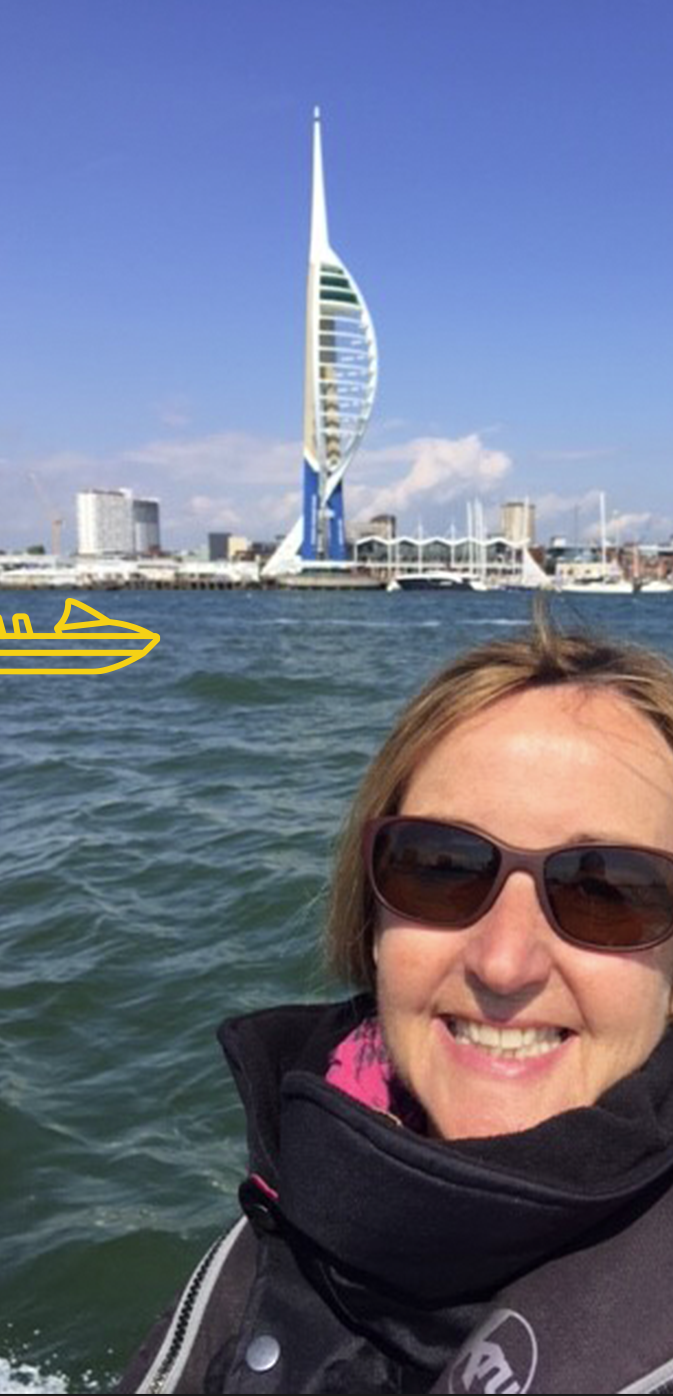
What The Course Will Cover:
- How to set up a boat ready to go to sea
- Basic engine checks
- Launch and recovery of a boat (if you want to use your own boat and trailer for this please let us know)
- What Safety gear you should have and how to wear or use it!
- Methods on how to start/stop a boat
- Man Overboard procedures
- How to work with and against the elements during slow boat manoeuvres
- Different techniques of coming alongside and leaving a berth
- Slow speed drills, remember 'Slow is Pro'
- Ropes and knots
- Knowledge of how to tow a boat (salvage)
- Local regulations and where to find them
- How to avoid an accident at sea using the International Regulations for Prevention of Collisions at Sea - IRPCS
- Understanding the weather
- Using an Almanac to get the tide times and other info
- Chart work and basic navigation including GPS and covering the buoyage system IALA
- Planing speed manoeuvres
- Anchoring & Mooring
The Price of Our RYA Powerboat Level 2 Course
Why is portsmouth the best location to get your icc boat licence.

Leisure and RYA Training Course we offer
Rya powerboat, rya powerboat level 1, rya powerboat level 2, rya intermediate powerboat, rya advanced powerboat, boat licence, icc powerboat under 10m, icc powerboat over 10m, pwc (jetski) - personal water craft, shore based courses, rya first aid, rya sea survival, rya tender operator.

Discover More with Boatability's Newsletter!

RYA Powerboat Level 2
Home RYA Powerboat Courses Powerboat Level 2
RYA Powerboat Level 2 Course
The rya national powerboat training scheme has been formed to meet the needs of those who use powerboats for leisure or work purposes. the rya powerboat level 2 syllabus aims to provide a level of training to suit all, from casual and weekend powerboat users to commercial skippers. once you have passed the level 2 this will allow you to apply for the icc ( international certificate of competence ) with no further training., key course details.
Duration: 2 days
Minimum Age: 12
Assumed Knowledge: None
Pre-Course Experience None
Course Price: £295 per person (Monday - Friday), £345 per person (Saturday, Sunday) / £590 with 1:1 tuition / 2 days from 9am to 5pm (approx).
Where will this course take place? Sovereign Harbour, Eastbourne, East Sussex
- Age + Experience
- Cost + Duration
Without doubt the most popular RYA Powerboat Course in the world, the RYA Powerboat Level 2 is a two-day practical and theory course which acts as the starting point for providing all the skills and background knowledge that you need to go afloat safely, including man overboard recovery and collision regulations.
The two-day Powerboat Training Course covers all aspects of powerboating, and provides the skills and background knowledge required to be a competent Powerboat driver. It is the basis of the International Certificate of Competence.
You will also receive the Coastal Endorsement to your certificate, which will cover tides, rules of the road, basic pilotage and navigational skills, and the general seamanship needed to keep you, and your crew, safe at sea.
The RYA National Powerboat Training Scheme is designed to meet the needs of those who use powerboats for leisure or work purposes. The RYA powerboat Level 2 Training Course syllabus aims to provide a level of powerboat training to suit all, from the casual and weekend powerboat user, to commercial skippers.
Undoubtedly, the most popular RYA Powerboat Course in the world, the RYA Powerboat Level 2 is a two-day practical and theory course which acts as the starting point for providing all the skills and background knowledge you need to go afloat safely. The two-day Powerboat Training Course covers all aspects of powerboating, and provides the skills and background knowledge required to be a competent Powerboat driver.
Upon successful completion of this course, the candidate can then apply for their ICC (International Certificate of Competence). Download the form together with your photo and a copy of your certificate and the licence will be sent to you. If you are a member of the RYA your ICC is free of charge, If not, it costs approximately £45. A fast-track option is available if required.
Training Course Content:
- Leaving and Coming Alongside
- Man Overboard
- Towing and being towed
- Launching & Recovery
- Safety Equipment
- Lines and Fenders
- Knots and use of Knots
- Currents and Tides
- Fast & Slow Speed Manoeuvring
- Securing to a buoy
The course is aimed at absolute beginners and those with some experience but perhaps no formal training, to ensure that they learn correctly and therefore have a good base understanding of boat handling, seamanship and navigational skills. Along with a proper foundation to continue doing it the right way, it will build confidence and provide the knowledge to make correct decisions, not only on the water, but when it comes to purchasing a boat of your own.
The RYA Powerboat Level 2 syllabus is broken down into three sections: Knowledge of the subject, Understands the subject and Can demonstrate a level of proficiency in the subject.
Section A – Practical
Launching and recovery Knowledge of:
- Use of a trailer or launching trolley
- Consideration of launching and sea conditions, including hazards and obstructions
- Number of persons required to launch/recover
- Construction, width and condition of slipway
- Steep/slippery slipways, beach launching, lee shores
- Care of trailer bearings, hitch, lashings, ties, lights and winch
- Trailer parking
- Prepare the boat, lines, fenders, safety equipment, fuel tanks, lines and secure gear on board
- Prepare to go afloat
- Tie relevant knots
Preparation of boat and crew Understands:
- Personal buoyancy and appropriate clothing
- The use of the following equipment: lines, fenders, anchor and warp, bailer, fire extinguisher, pump, paddles or oars, compass, flares, torch, whistle, charts, first aid kit, sharp knife
Boat handling Knowledge of:
- Loading: effect on handling and performance, effect on balance and trim, CE Plate and manufacturer’s recommendation
- Handling characteristics of displacement boats, rudder-steered craft and shaft-driven vessels
Understands:
- Crew members: minimum number in faster craft, keeping a look-out
- The importance of boat control in waves and adequate seating to minimise the possibility of injury
- Awareness of other water users, including effect of wash
- Steering, controls, effect of current or tidal stream
- Handling a boat at planing speed, trim tabs and power trim
- Planing boats: propeller angle and immersion, shallow drive, planing and displacement speed handling, tiller/console steering
- Carry out pre-start checks, engine starting and stopping
- Demonstrate the use of an appropriate length kill cord at all times
- Carry out low speed manoeuvres including: turning in a confined area, effect of wind on bow and holding off. Demonstrate an awareness of the danger of flooding when going astern
- Handle a boat at planing speed
Securing to a buoy Understands:
- Preparation of mooring warp
- Use of a boat hook
- Direction of approach
- Taking way off
- Crew communication
- Making fast
- Procedure when overshooting
- Approach and secure to buoy
Anchoring Knowledge of:
- Types of anchor
- Stowage and attachment to boat
- Preparation of anchor, chain and warp
- Weighing anchor
- Correct approach in various conditions
- Checking holding
- Depth of water, holding ground, scope required
- Approach and anchor correctly
- Weigh anchor correctly
Leaving and coming alongside Understands:
- Preparation and use of lines and fenders, attachment to boat, stowage under way
- Speed and angle of approach
- Wind effect
- Method of approach in tidal stream or current
- Make fast alongside
- Use springs
- Leave – ahead or astern
Man overboard Knowledge of:
- Recovery of man overboard
- Cold shock and immersion hypothermia
- How and when to raise the alarm
- Take immediate action
- Observe the man overboard
- Carry out the correct return with awareness of propeller
- Approach and recover the ‘man’ in the water
- Demonstrate both drift down and into wind approach method
- Switch engine off
Section B – Theory
Knowledge of:
- Types of craft: advantages and disadvantages of different hull forms with respect to sea-keeping ability
- Seating arrangements
- Stepped hulls
- Engines and drives: advantages and disadvantages of outboard, inboard and outdrive units, single and twin-shaft drives, choice and use of fuels
- Siting of fuel tanks, fuel lines, batteries, wiring, fire extinguishers
- Routine engine maintenance checks, basic fault diagnosis
- Close down procedure
- Advice to inland drivers about coastal waters
- Use and limitations of GPS/chart plotters
- Application of local byelaws, especially around commercial shipping
- Sources of weather information
- Awareness of other water users
- Communication with other craft – hand and sound signals
- Disabled craft
- Emergency action, preventing sinking
- Adrift – alternative means of propulsion
- Actions to be taken by a disabled craft and being towed
- Fire precautions and fire fighting
- Distress signals, means of issuing distress, DSC and the Mayday call Advice for vessels in restricted visibility
- Apply IRPCS, principally rules 5, 6, 7, 8, 9, 12-18
Section C – Coastal
- Byelaws and local regulations
- Boat registration schemes
- Pilotage and passage planning
- Charts, chart symbols, buoyage systems
- Tides and tidal streams
- Use steering and hand bearing compasses
- Apply Section A on coastal waters
The minimum age for this course is 12 years old. Generally, we’re happy for a child over 12 to attend a course with their parent/guardian on our boats at any time, but please call to discuss before making a booking. Children over 16 can attend a normal course at any time but we must have the parent/guardian’s specific permission. Please call to discuss before making a booking.
No prior boating experience is necessary to take this course. The RYA Powerboat Level 2 course is a perfect balance for those new to boating and those who have previous boating experience. Most people tend to take Level 2 and bypass Level 1 , and you do not need to already have Level 1 before you take Level 2.
£295 per person (Monday – Friday), £345 per person (Saturday, Sunday) / £590 with 1:1 tuition / 2 days from 9am to 5pm (approx).
Upcoming Powerboat Level 2 Courses
Please see below for an up-to-date list of all current powerboat level 2 course dates. if you have a specific date in mind that isn’t shown, then please get in touch with us and we will do our best to accommodate you..
All of our courses can be paid for by credit/debit card or BACS (bank transfer). If paying by BACS, please be aware that we require payment within 24 hours of booking, otherwise the booking may be cancelled.
If you have a date in mind or would like one thats not listed please get in touch. E - mail is the swiftest method for a response as the phones are generally unmanned for long periods, Please be sure to refresh your browser as dates get added for courses and cancellations make extra dates available as well, . Its maximum of 3 students per course (This message last updated 10/06/2024)
This two-day practical and theory course covers all aspects of powerboating, and provides the skills and background knowledge required to be a competent powerboat driver.
Only 1 space(s) left.
£ 295.00 pp
This course is taken over 2 days
Sorry, this course is fully booked. Please contact us to be put on the cancellation list.
Only 2 space(s) left.
Only 3 space(s) left.
£ 345.00 pp
Looking for other powerboat and sailing training courses? See our full range of powerboat, shorebased and online training courses here.
Powerboat training courses Shorebased and online courses
Got a question? Need help choosing the right course?
Powerboat training school.
Sea Training Sussex provides RYA sailing training courses, powerboat training courses and shorebased training courses from Sovereign Harbour, Eastbourne. We also offer a full range of online training courses.
Telephone: 01323 387141
Email: [email protected]
Popular Courses
- Powerboat Level 2
- International Certificate of Competence (ICC)
- Intermediate Powerboat
- VHF Marine Radio
- First Aid at Sea
- Gift Vouchers
RYA Accredited

© 2024 Sea Training Sussex. All Rights Reserved. Terms | Privacy | Cookies | Sitemap | Eastbourne Boat Trips | Scattering of Ashes Web Design by FLEXX Creative
- Powerboat Level 1
- CEVNI Exam – Online
- Essential Navigation + Seamanship – Online
- Diesel Engine
- Courses Dates
- Mileage Building + Experience Trips
- Why Choose Us
- [email protected]
- 01323 387141

- Request Callback
Add custom text here or remove it
- RYA Powerboat Level 2 (PB2)
RYA Powerboat Level 2
Level 2 powerboat handling course, would you like to learn to drive a powerboat or rib confidently and safely in just 2 days.
Develop your skills behind the wheel of a powerboat to become confident and competent in handling a powerboat or RIB. This hands-on course will provide you with the safe driving and handling skills necessary to execute short day trips in your powerboat if you are new to the sport of power boating. In addition to the new skills gained you will also be presented with your powerboat licence (Powerboat Level 2 Certificate) and the option to apply for your international power boat licence – ICC.

Course Duration: 2 Days in Southampton
(Or shorter Powerboat Level 2 Direct Assessment evaluation sessions for seasoned drivers (up to one day).
Minimum Age - 12
(The minimum age to enrol in the Level 2 Powerboat Handling course is 12, although a commercial endorsement cannot be achieved until the student reaches the age of 17.)
Book Your Powerboat Level 2 Course Today
Individual bookings, list price £360.00 per person.
Winter seasonal discounts now available, see individual dates for offers.
(We do not charge extra for VAT, Fuel or a Fuel Surcharge)
Late Availability
From £255 per person, online bookings.
(All availability and pricing is in realtime – check for late availability & special price courses)
1-2-1 Bookings
For 1-2-1 Powerboat Level 2 courses please phone or use the Chat Box in the bottom righthand side of the screen.
We accept UK debit cards and VISA/Mastercard credit cards. (NO Charge for paying on debit or credit cards)
(Special Offers and Special Prices apply to new bookings only) To request further information on any Course please use the Chat Box at the bottom of this screen
The powerboat level 2 handling course not only teaches students the skills and foundational knowledge necessary to operate a powerboat competently, but it also serves as the foundation for the International Certificate of Competence (ICC) your international powerboat licence.
The RYA Powerboat Level 2 Syllabus is delivered mainly out on Southampton Water with some topics presented in a classroom setting with a student-to-instructor ratio of three attendees to one instructor, and it covers the topics listed below:
- Launching and recovery
- Powerboat handling
- Securing to a buoy
- Leaving and coming alongside
- Safety equipment
- Man overboard
- Leaving and returning to pontoons
- Basic navigation
- Collision prevention regulations
- Boat design
- Engines and drives
Our boats ~ with 7m Ribcrafts as our main teaching boats we have invested considerably so that you get to use quality kit in great condition. Each RIB is fully equipped for training up to Advanced level and are fitted with the latest powerful 200HP Suzuki outboard motors, Icom VHF Radios and Garmin electronic chart plotters.
Our instructors ~ we ensure that our instructors are teaching 100% ‘Best Practice’ and have a process whereby we constantly review their sessions to ensure that you get the most productive and enjoyable experience from your time with us. All teach because they love boating and we work with them to constantly ‘upskill’ their qualifications and experience.
Our history ~ we started the sea school over twenty two years ago and have grown a reputation for delivering on our promises. Our clients range from individuals with their own craft to large national corporates and UK based marine companies.
What is included in the course price? ~ when you undertake your Level 2 Course on our boats then the price you pay includes Fuel (often charged as extra at the end of courses by schools) plus of course free parking on an availability basis. We do not charge extra for VAT.
Coastal endorsement ~ As we are a coastal based school, we are able to award powerboat licences with a coastal endorsement with all our courses being held at Ocean Village Marina, Southampton SO14 3XB UK (near Shamrock Quay Marina & Ocean Quay Marina) and in the Solent area.
Why choose the Powerboat Level 2 course?
The qualification known as “Powerboat Level 2” is also often referred to as “Powerboat Handling Level 2.” Those who have obtained their Powerboat Level 2 certification are eligible to submit an application to the RYA for their Powerboat ICC ( International Certificate of Competence ), which is valid for boats up to 10 metres in length.
The RYA Power Boat Level 2 course is the gold standard of powerboat education, and its length of two days allows students ample time in both hands-on powerboat instruction and theoretical navigational study. The purpose of a powerboat level 2 course is to instil the necessary skills for operating and operating a powerboat safely. While the course content may seem comparable to that of Powerboat Level 1 at first look, the additional time allows for a far more in-depth examination of each topic, greatly increasing the student’s potential for organisational learning.

What does the course involve?
Theory time will be spent learning about different types of boats and their advantages and disadvantages, different types of engines and drives, how to use power tilt and trim tabs, how to perform safety checks, how to stay afloat, how to recognise other boaters, how to apply the collision regulations (IRPCS), how to comply with local ordinances, how to tow and be towed, how to communicate in an emergency, how to send and receive distress signals, how to prevent fires, and how to fight fires.
The first day of the training focuses on honing your skills in handling the vessel in tight quarters, while the second day teaches navigation and gives you plenty of practise time to put your newfound knowledge to use.
Our second day of training focuses on navigational basics including reading maps, calculating tides, identifying buoys, and navigating with a compass. We next put our newly acquired knowledge to use by creating a brief pilotage plan and carrying it out.
If you choose, you can apply for your ICC from the RYA once you have attained the level at which we can grant the Level 2 certificate. Once you obtain the necessary paperwork, and when you submit it along with a photo and a copy of your certificate, you will be issued a licence. Your ICC is free if you are a member of the RYA; otherwise, it costs about £50 per person. Coincidentally, joining the RYA costs nearly the same, so we normally recommend joining first to receive the ICC for free. If you join the RYA before attending your course please enter Joining Point Code No 920082657 on your application.
The Level 2 certificate can occasionally be obtained without completing the entire course. This process, called Direct Assessment, takes a half-day to one day. (Let us know if you interested in pursuing Level 2 in this manner.)
What is covered in the course?
This powerboat course teaches you the basics of handling a powerboat including safety and navigation. It essentially provides you with the skills you need to charter a powerboat on your next trip away or abroad.
When you take the PB2 course with Duck-2-Water, qualified RYA instructors will provide training on a modern and fully-equipped powerboat. Your instructor will cover the following topics with you during your 2 days with him or her:
The RYA theory element of the Powerboat Training Level 2 course will cover the types of craft and their respective advantages and disadvantages, engines and drives, use of power tilt and trim tabs, safety checks, personal buoyancy, awareness of other water users, application of the collision regulations (IRPCS), local bylaws, towing and being towed, communication with other craft, emergency action, distress signals, fire precautions and fire fighting, and rope work.
Depending on how an individual powerboat instructor structures the course, the second day may involve a practical assessment of boat handling capability. This will involve undertaking manoeuvres learnt earlier in the course. This test can be taken on its own without undertaking the Level two course. This is known as Direct Assessment and can lead to the award of a powerboat level two certificate.
A further consideration when attending a powerboat level two course is where you take it. Coastal based schools award certificates with a coastal endorsement. This means that the student has learnt in conditions where tides and currents must be considered. Generally speaking, if you intend using your boat in coastal waters ensure that you undertake a level 2 course with a powerboat coastal school.
What are the level 2 course requirements
You do not need to have attended a Powerboat Level 1 Course in order to do this course. If you have already attended a Powerboat Level 1 course you will find that a benefit, however, no prior boating experience or powerboat training is necessary or essential if you want to take the course, and it is open to anyone over the age of 12.
The RYA Powerboat Level 2 ICC Course suits both those with extensive boat handling experience and those who have never stepped onto a boat before.
A further consideration when attending the RYA Powerboat Level 2 ICC Course is where you take it
We are allowed to give certificates with a coastal endorsement because our school is located on the coast, and all of our classes are hosted at Ocean Village Marina, Southampton SO14 3XB UK (near Shamrock Quay Marina & Ocean Quay Marina), as well as other locations throughout the Solent region.
This means that the student has learnt in conditions where tides and currents must be considered. Generally speaking, if you intend to use your boat in coastal waters, ensure that you undertake a course with a coastal school.
Benefits of having a level 2 RYA powerboat certification
This is a criteria that is commonly required by employers as a bare minimum. After obtaining this degree, students have the opportunity to continue their education and earn their International Certificate of Competence (ICC), which is a necessity for working with boats in other countries.
Your development of a solid foundational understanding of boat management, navigation, and seamanship will be the primary focus of the training you will get. Following the completion of the course, you will be able to “bolt on” additional practical experience in order to properly solidify the knowledge that you received during the course.
The RYA PBL2 course is an excellent approach for anyone considering purchasing a boat to develop into a more “informed buyer.” When evaluating the vast array of vessels available for purchase, being surrounded by so many boats and having the opportunity to debate the benefits and drawbacks of the various models with the Instructor is really helpful.
If you own a boat and want to insure it through the Royal Yachting Association , holding the RYA powerboat 2 qualification could help you save money on your premiums.
Does RYA Powerboat Level 2 certificate expire?
Will the RYA Powerboat Level 2 license expire?
No, the Powerboat level 2 license does not expire . However, if you have not handled a powerboat or RIB for some time then we also offer refresher sessions or mile building experience days. These PB2 refresher days are also a fantastic way to build on your skills should you not have access to a RIB or powerboat having completed your powerboat training.
Please email, WhatsApp or phone Duck-2-Water for more information on these PB2 refresher/Solent orientation days.
What is the duration of a Powerboat Level 2 Course?
The powerboat level 2 course (PB2 handling course) runs over 2 consecutive days or shorter as a direct assessment for experienced drivers.
You can book your 2 day course securely via the online calendar on our website.
For the powerboat level 2 direct assessment option please email, WhatsApp or phone Duck-2-Water .
What is the minimum age to attend the RYA Powerboat Level 2 Course?
For the Level 2 Powerboat course the minimum age is 12 , but a commercial endorsement cannot be obtained until the age of 17. It is recommend all Powerboat drivers under the age of 16 are supervised by an adult who holds the same Powerboat qualification as a minimum.
What Comes After Powerboat Level 2?
Do i require any previous experience to take a powerboat level 2 course.
No, the RYA powerboat level 2 course also known as the PBL2 assumes no prior experience . The powerboat level 2 course is a great foundation Powerboating course and can be attended by anyone aged 12 or older.
What is the Student/Instructor ratio on a Powerboat Level 2 Course?
The maximum student to instructor ratio on a Powerboat course is 3:1 per powerboat or RIB .
What powerboats can I drive with a RYA Powerboat level 2 Certificate?
This is dependant upon the local laws of the country you are driving your powerboat or RIB in but typically you can drive any powerboat up to 10 metres in length with any horsepower engine.
How do I replace a Lost RYA Powerboat Level 2 Certificate?
Please contact the RYA Certification Department who will advise you the process to obtain a replacement Powerboat Level 2 Certificate.
Is the powerboat level 2 the equivalent to a UK boat license?
Yes , the powerboat level 2 is the equivalent to a UK boat license.
This licence is mandatory to ensure that you are aware of the safety procedures and can operate the vessel confidently.
After successfully completing the RYA Powerboat Level 2 course, you can then apply for an International Certificate of Competence (I.C.C.) if you plan to operate a powerboat in Europe.
International Certificate of Competence
ICCs are required in many European countries when using or chartering vessels. It shows your competence and is essential to skipper a boat in the Mediterranean or European waters. The Powerboat level 2 course suits those with extensive boat handling experience and those who have never stepped onto a boat before. Once you have successfully completed your Powerboat Level 2 course with Duck-2-Water you can apply to the RYA for your ICC at the following webpage ICC Application
How do I apply for an ICC
On successful completion of your Powerboat Level 2 course Apply to the RYA at the following webpage for your powerboat licence up to 10m in length; ICC Application
Get in Touch
Our location.
Why choose Duck-2-Water?
Our aim is to provide a full and comprehensive service to boating enthusiasts. If you would like to buy your first boat, we are here to listen to what you are trying to achieve and give completely impartial advice, so that you purchase the right yacht charter for you. When you need to gain confidence or qualifications, our RYA Sea School can help at all levels.
RYA Training Courses

Powerboat Level 1

Powerboat Level 2
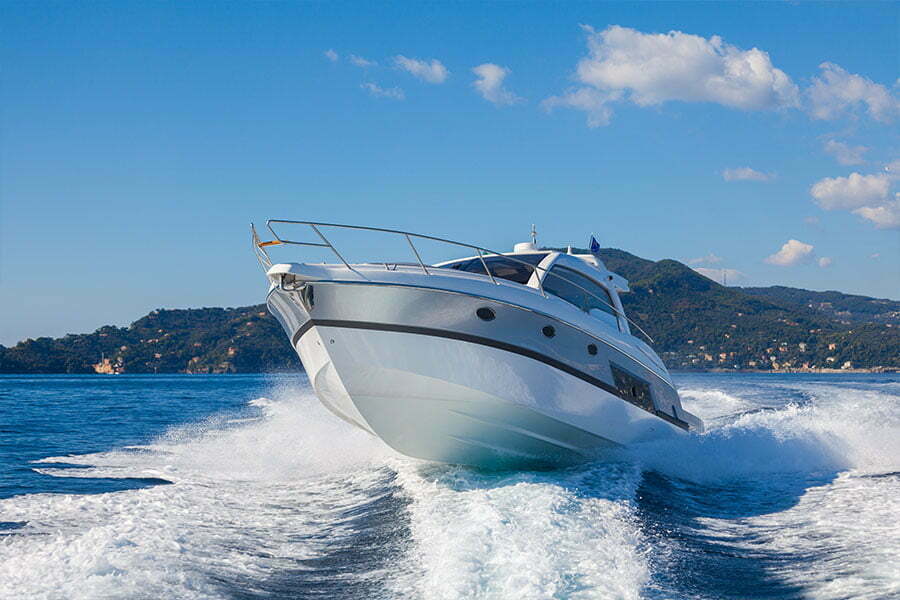
Intermediate Powerboat Training
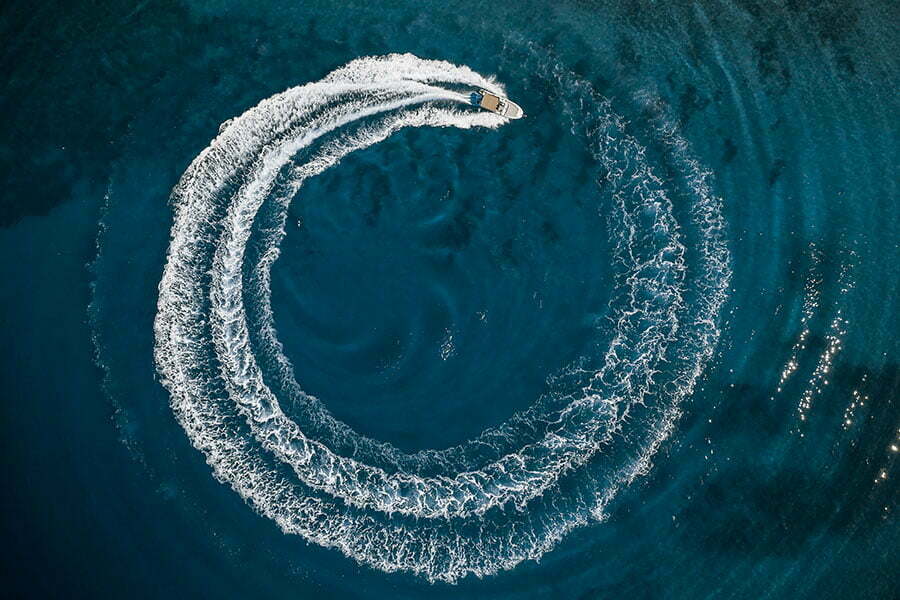
Advanced Powerboat Training
Get in touch.
WhatsApp, email or phone our dedicated team
Get Our Newsletter!
Read our blog, advertise boating courses, popular courses.
Mile-builder cruise
RYA Helmsman
Competent Crew or Day Skipper Sail
RYA Competent Crew
RYA Powerboat Level 2
FAQ’S: All About The RYA Powerboat Level 2 Training Course
How much will it cost including exam fees, what will you get out of the powerboat level 2 course, what are your limitations after passing it, is the course theory, practical or both, where can you take the powerboat level 2, can you do it in another country, what level of experience do you need before you take the course, what is the duration of the course, what exactly does it involve.
- You will learn how to handle and drive a powerboat of up to 10 metres in length.
- You will cover boat handling and basic engine maintenance.
- You will learn about coming off and onto a dock as well as mooring and anchoring.
- You will also look at man overboard techniques.
- Finally you will look at high speed manoeuvres, including man overboard at high speed.
- You will learn about knots, meteorology, navigation and pilotage.
- You will also learn about the international Collision Regulations.
- You will also look at distress calling and firing flares to get help.
How do I progress after passing it?
Does the rya powerboat level 2 give you international accreditation, where can i learn more about this course.
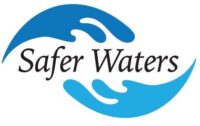
Safer Waters is a Charity offering a unique service in Northern Ireland, established in 2020 to provide a Safety Boat service for water-based community events. We are also an RYA Training center offering Powerboat PB2 courses
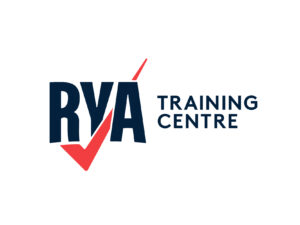
As a charity we try to keep the cost of our courses down but it doesnt mean we reduce the quality. Our instructors strive to ensure participants learn new skills and importantly enjoy themselves. Safer Waters rely on the below RYA courses to fund our Safety Boat Service to community events. So thank you to all who attend our courses.
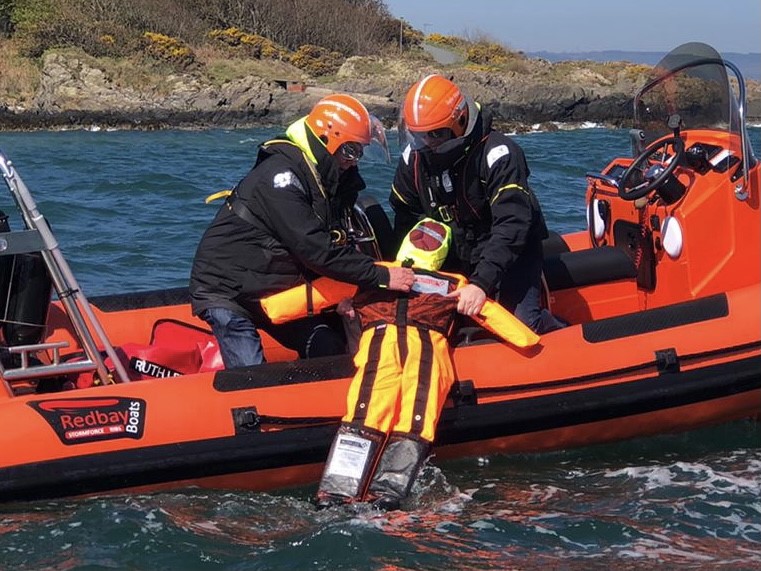
Powerboat level 2 handling (PB2)
Course Duration – 2 day
Without a doubt the most popular RYA Powerboat Course in the world, the RYA Powerboat Level 2 is a two-day practical and theory course that acts as the starting point for providing all the skills and background knowledge that you need to go afloat safely, including man overboard recovery and collision regulations.
It is also the most popular powerboat charter qualification and is also known as the ‘Powerboat Handling Level 2’. Those gaining their Powerboat Level 2 can then apply to the RYA for their ICC (International Certificate of Competence).
Continue Reading →
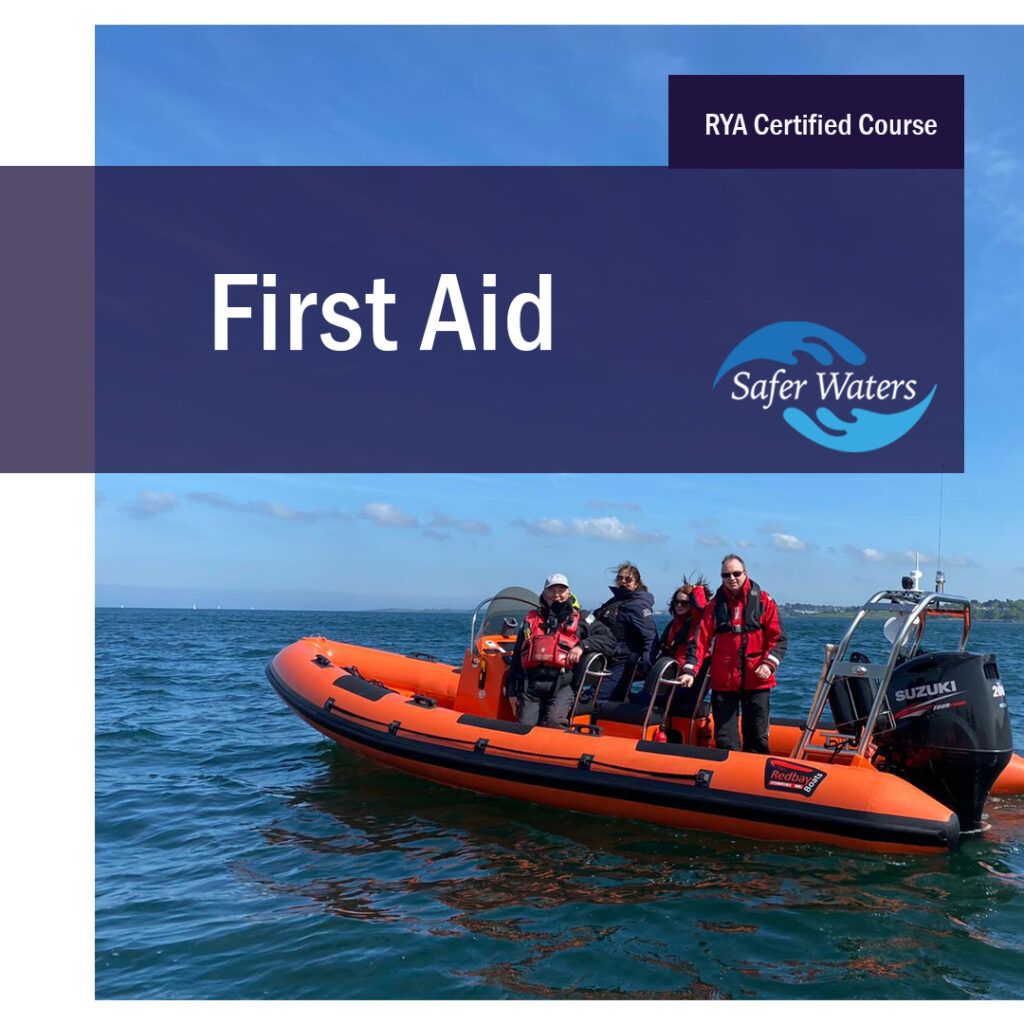
Course Duration – 1 day
Our one-day First Aid course covers all the usual first aid subjects, but from a boating perspective. It is aimed at anyone who goes afloat, whether on inland waters, rivers, estuaries, or on cross-channel passages. This course is MCA approved and satisfies the requirements for Coastal Skipper Yachtmaster and Advanced Powerboat certificates of competence and some commercial work afloat.
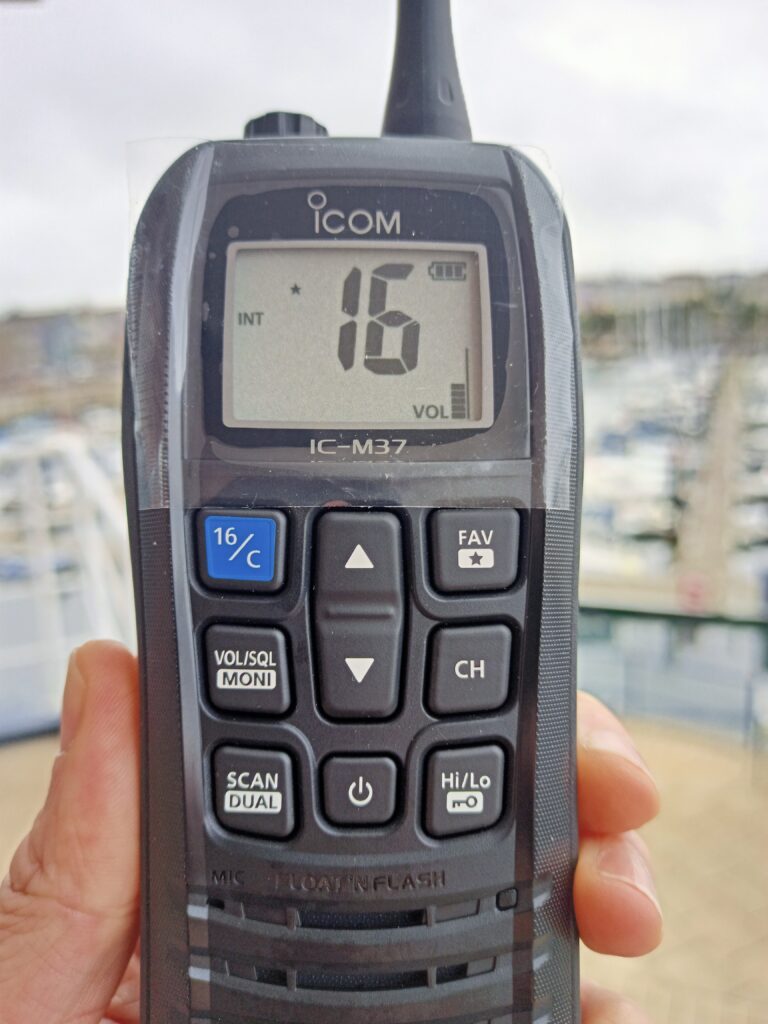
Marine Radio SRC Course and Exam
This RYA Marine radio SRC (Short range certificate) course and exam for anyone who owns a fixed or handheld marine VHF radio. A vhf radio is an important piece of safety equipment on board and it is vital to understand the correct procedures. The Short Range Certificate is the minimum qualification required by law to control the operation of VHF and VHF Digital Selective Calling (DSC) equipment on any British flagged vessel voluntarily fitted with a radio either fixed or hand held. Bottom line is that you need an RYA VHF Radio License otherwise known a Short Range Certificate.
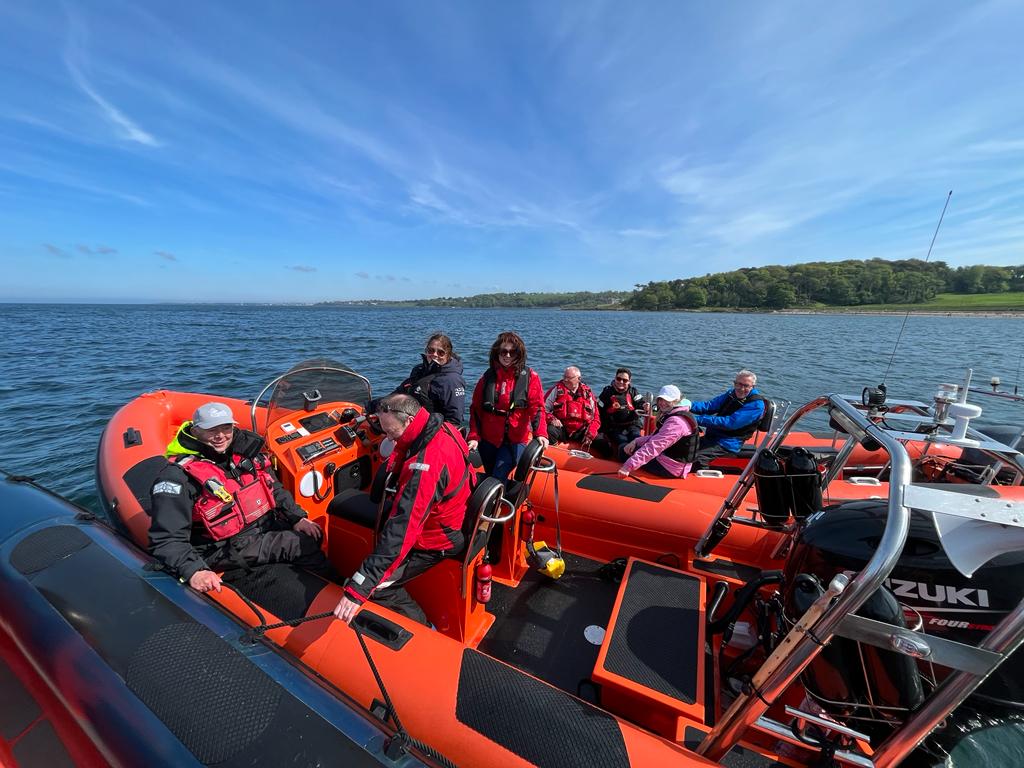
ICC Assessment
Course Duration – 1 Day
The ICC (or to give it its full title International Certificate for Operators of Pleasure Craft) is a certificate which is intended to provide evidence of competence when requested by officials in foreign countries. It was historically known as the International Certificate of Competence.
(Where evidence of competence is necessary, is intended for British recreational boaters operating UK registered Pleasure Vessels and is based both on what we understand the law to say and boaters’ experiences in the country. The RYA generally recommends carrying the ICC as evidence of competence in other European countries).
If you’d like further info or want to find out more, use this form to get in touch with us.
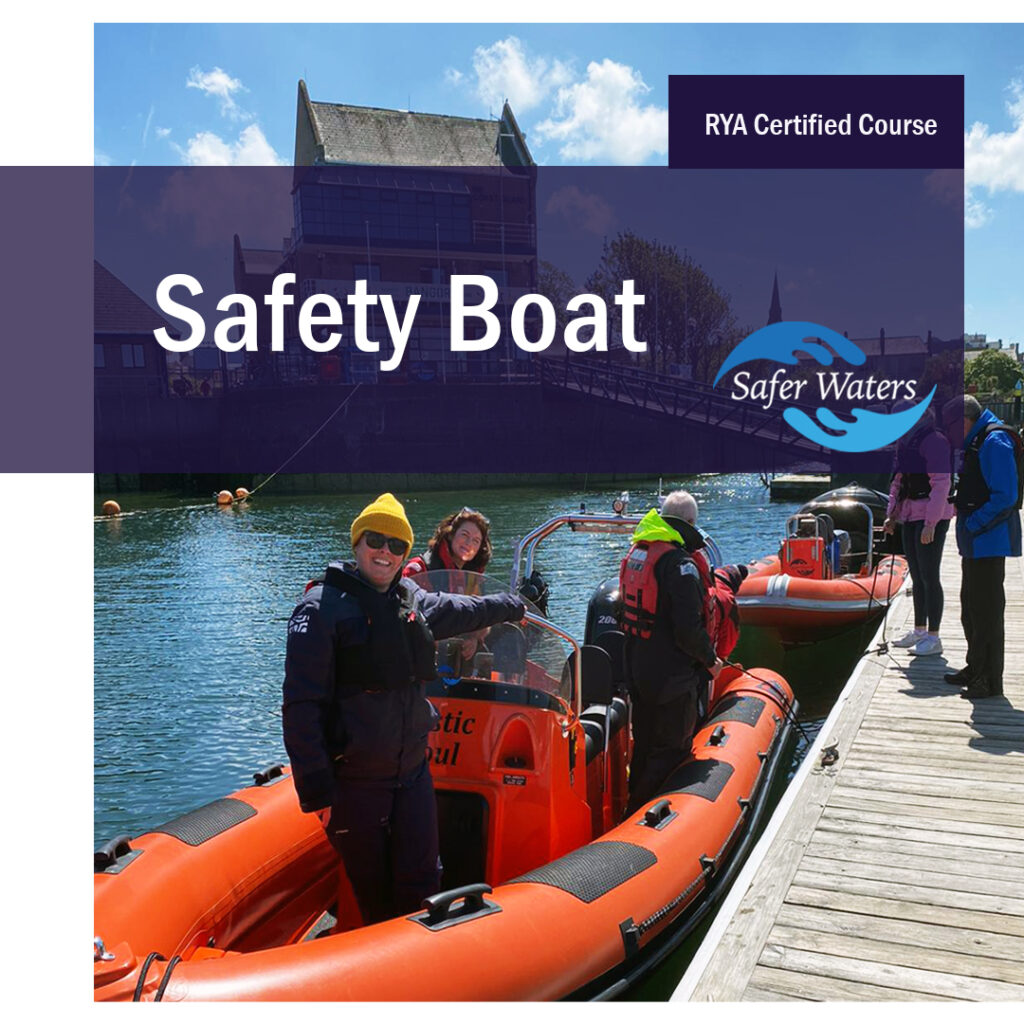
Safety Boat
Course Duration – 2 Days
This two-day course provides the skills required when acting as an escort craft, safety boat or coach boat for a fleet of dinghies, windsurfers or canoes, or for racing or training activities. It includes rescue techniques and elements of race management and mark laying. It is strongly recommended that a member of the rescue crew should hold a first aid certificate (or should have experience of first aid).
Applicants should have a basic understanding of sailing boats and windsurfers (though not essential). RYA Powerboat Level 2 certificate must be held prior to this course
CONTINUE READING →
Privacy Overview
| Cookie | Duration | Description |
|---|---|---|
| cookielawinfo-checkbox-analytics | 11 months | This cookie is set by GDPR Cookie Consent plugin. The cookie is used to store the user consent for the cookies in the category "Analytics". |
| cookielawinfo-checkbox-functional | 11 months | The cookie is set by GDPR cookie consent to record the user consent for the cookies in the category "Functional". |
| cookielawinfo-checkbox-necessary | 11 months | This cookie is set by GDPR Cookie Consent plugin. The cookies is used to store the user consent for the cookies in the category "Necessary". |
| cookielawinfo-checkbox-others | 11 months | This cookie is set by GDPR Cookie Consent plugin. The cookie is used to store the user consent for the cookies in the category "Other. |
| cookielawinfo-checkbox-performance | 11 months | This cookie is set by GDPR Cookie Consent plugin. The cookie is used to store the user consent for the cookies in the category "Performance". |
| viewed_cookie_policy | 11 months | The cookie is set by the GDPR Cookie Consent plugin and is used to store whether or not user has consented to the use of cookies. It does not store any personal data. |

RYA Powerboat Level 2
This two day course provides a level of training that is ideal for anyone from the casual weekend user through to some commercial users. You will be taught launching and recovery, use and care of safety equipment, basic knots, fast and slow speed boat handling, use of trim, towing, man overboard, anchoring and securing to a buoy.
You will also learn some basic navigation and the factors that need to be taken into account when planning your trip. This course will also enable you to apply for the ICC (International Certificate of Competence). This qualification is required by most European countries to validate your competence to own or charter a boat. The ICC obtained by presenting your Powerboat Level 2 certificate will cover powerboats upto 10 metres in length.

Minimum Age:
12 (Candidates under 16 will be awarded an endorsed certificate requiring adult supervision)
0900 until 1700 each day. Click here for an example schedule of how you will spend the weekend
What's Included:
Wet weather gear, RYA Start Power Boating book G48 and tea and coffee.
Support Courses:
- RYA Online Essential Navigation and Seamanship Course
- VHF Radio Course
- RYA First Aid Course
- RYA PPR Course
Next Step:
Having completed this course you should aim to spend a season putting the skills learnt into practice and then return to attend the RYA Intermediate Powerboat Course
Duration: 2 days
Previous Experience Required: None.
Course Overview: A detailed introduction to power boating that will enable you to safely take out your own powerboat in familiar waters in daylight and settled weather
Click here to view full course syllabus

RYA Powerboat Level 2
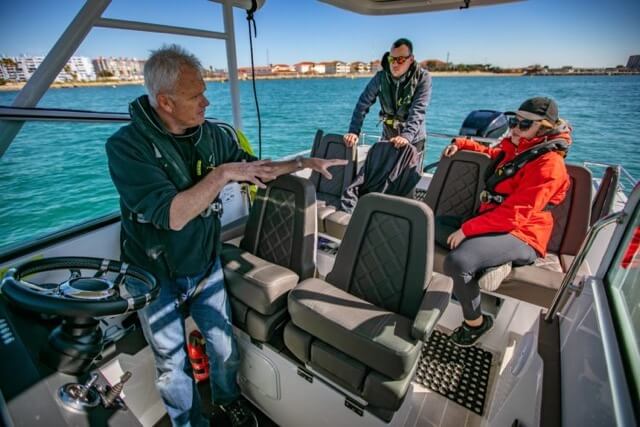
RYA Powerboat Level 2 course
The Powerboat Level 2 course is an essential course for all powerboats up to 10 meters whether your preferred boat is planning or displacement, inboard or outboard, RHIB, fishing boat or speedboat. The course is run over two days with lots of hands on practice including berthing and exhilarating high speed manoeuvres, you will have lots of opportunity to take the helm. This course is great fun and beneficial at the same time. No previous experience is required to join this course, equally you may be a regular powerboat user and now find you need to have an official certificate.
Powerboat Course Content
There is no need to do the RYA Powerboat Level 1 before joining this course, the two day event includes the content from the RYA Powerboat Level 1 & 2 courses together. Over the two days 0900 to approximately 1600 you will cover launching and recovery, safety equipment, lines and fenders, fuel tanks, effects of current or tide, high and low speed manoeuvring, propeller controls, securing to a buoy, anchoring leaving and coming alongside, man overboard, types of craft and engine, maintenance checks, IPRCS, weather forecasts and emergency action.
The powerboat Level 2 course is a first step towards your Advanced powerboat Certificate of Competence.
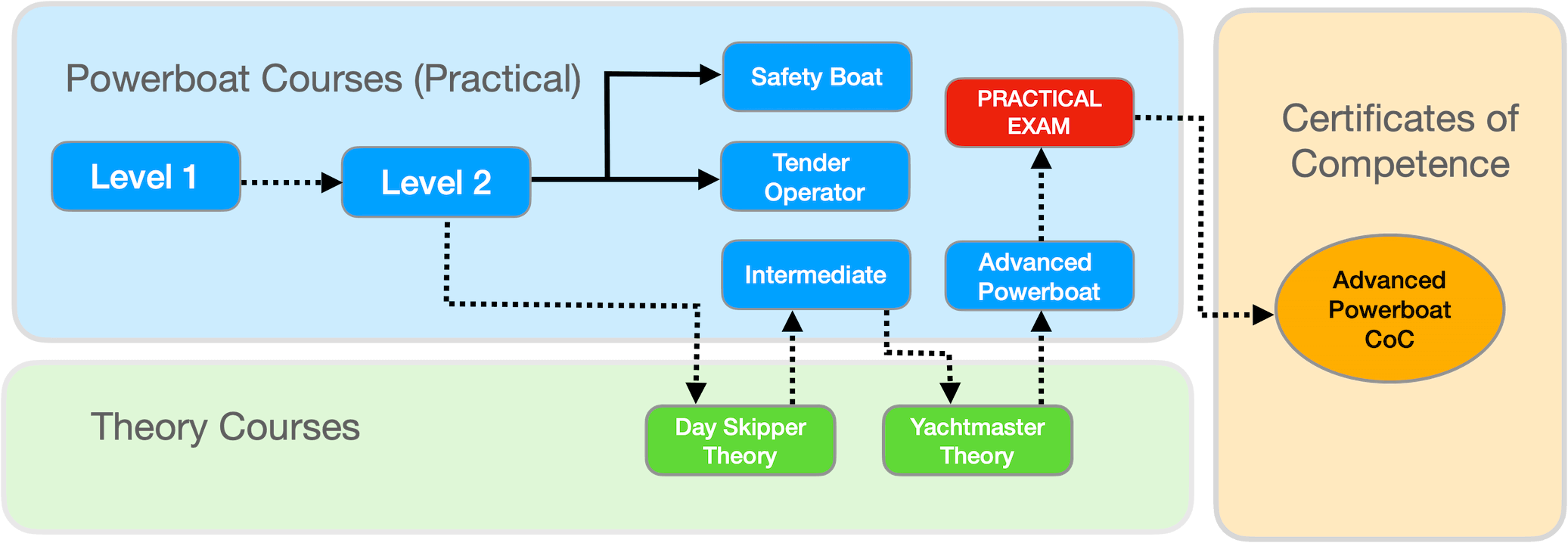
Course Dates 3:1 ratio onboard:
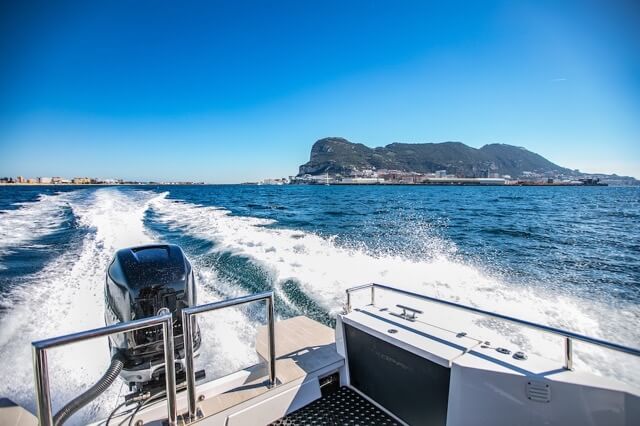
What do I bring?
You will receive the RYA Powerboating book as a print or ebook. Wear casual outdoor clothing with non marking shoes and bring a tasty picnic packed lunch & drinks with you each day along with a passport sized photograph for your final photo certificate issued upon successful completion of the course.
Powerboat Level 2 Course Price
£395 per person
How to book:
Full payment confirms your course, click here for card payments online or over the phone with James on 00350 200 50202 UK Mobile & WhatsApp 0044 7872 221143

Search all results

Powerboat Level 2
The syllabus is divided into several key areas, each focusing on different aspects of powerboating.
1. Introduction to Powerboating
This section provides an overview of powerboating, familiarizing participants with the different types of powerboats and their specific uses.
- Planing and displacement hulls.
- Outboard, inboard, and sterndrive engines.
- Inflatable boats and rigid inflatable boats (RIBs).
- Understanding the parts of a boat (e.g., bow, stern, port, starboard).
- Familiarity with controls and instrumentation.
2. Preparation for Sea
This section focuses on pre-departure preparations, ensuring the boat and crew are ready for a safe journey.
- Conducting engine checks, including oil, fuel, and cooling systems.
- Inspecting hull, steering, and controls for any issues.
- Verifying safety equipment is onboard and in good condition (life jackets, flares, fire extinguisher).
- Interpreting weather forecasts and understanding their impact on sea conditions.
- Understanding tides, tidal streams, and their influence on navigation.
3. Launching and Recovery
Participants learn the techniques for safely launching and recovering a powerboat.
- Attaching the trailer to the towing vehicle correctly.
- Positioning the boat on the trailer and securing it.
- Launching from a slipway, considering the slope and surface conditions.
- Approaching the slipway and aligning the boat for recovery.
- Securing the boat on the trailer and ensuring it is ready for transport.
4. Boat Handling
This section covers essential boat handling skills, focusing on maneuvering at different speeds and in various conditions.
- Basic steering techniques and throttle control.
- Carrying out tight turns and figure-of-eight maneuvers.
- Understanding the transition from displacement to planing mode.
- Practicing high-speed turns and avoiding propeller cavitation.
- Selecting a suitable anchorage and setting the anchor.
- Techniques for picking up a mooring buoy.
- Securing the boat to a dock or pontoon.
5. Securing to a Buoy
Participants practice approaches and securing the boat to a buoy in various conditions.
- Using wind and current to assist in approaching the buoy.
- Controlling speed and direction for a smooth approach.
- Attaching lines to the buoy safely.
- Understanding the effects of tide and wind on the boat once secured.
6. Man Overboard Procedures
This crucial section teaches participants how to effectively handle a man overboard (MOB) situation.
- Immediate actions to take when someone falls overboard.
- Maintaining visual contact with the person in the water.
- Turning the boat safely to return to the MOB.
- Approaching the MOB from a safe direction considering wind and current.
- Using retrieval equipment and techniques to get the person back onboard.
7. Navigation and Passage Planning
Participants gain basic navigation skills and learn to plan safe passages.
- Reading nautical charts and understanding chart symbols.
- Plotting a course and measuring distances.
- Using a handheld compass and boat’s compass for navigation.
- Correcting for magnetic variation and deviation.
- Preparing a passage plan considering tides, weather, and hazards.
- Estimating arrival times and fuel consumption.
8. Collision Regulations
Understanding the International Regulations for Preventing Collisions at Sea (COLREGs) is critical for safe boating.
- Rules of the road, including overtaking, head-on, and crossing situations.
- Understanding and recognizing navigation lights and shapes.
- Using sound signals to communicate intentions and warnings.
- Identifying and understanding lateral, cardinal, and special marks.
9. Safety and Emergency Procedures
Participants learn about essential safety protocols and emergency response techniques.
- Familiarity with life jackets, flares, fire extinguishers, and other safety gear.
- Ensuring equipment is accessible and in good condition.
- Responding to common emergencies such as engine failure, fire, and grounding.
- Using distress signals (e.g., VHF radio, flares) to call for help.
- Basic first aid and hypothermia prevention.
By the end of the RYA Powerboat Level 2 course, participants will have a comprehensive understanding of powerboat operation, including practical handling skills, navigation, safety procedures, and emergency response, equipping them with the confidence and competence to operate powerboats up to 10 meters in length safely.
Upon successful completion of the RYA Powerboat Level 2 course, participants will receive the RYA Powerboat Level 2 certificate.
This certificate is often a prerequisite for renting powerboats in the UK and abroad and can be converted to the International Certificate of Competence (ICC), which is recognised worldwide.
The course enables participants to operate powerboats up to 10 meters in length, and it is a stepping stone for further training and qualifications in powerboating and other maritime activities.
There are no formal prerequisites for the RYA Powerboat Level 2 course. It is open to anyone, regardless of prior boating experience.
However, participants should be at least 12 years old. Those under 16 will receive an endorsed certificate, limiting them to powerboats under the supervision of an adult.
The Powerboat Level 1 certification is not a requirement for the Powerboat Level 2.
The RYA Powerboat Level 2 course typically runs over two days, with each day involving a mix of classroom-based theory and practical sessions on the water. The course usually consists of around 16 hours of training.
Here is a typical course structure:
- Introduction & Safety Briefing (1 hour)
- Classroom Theory (1 hour)
- Practical Session 1 (2 hours): Low-speed maneuvers
- Practical Session 2 (2 hours): High-speed maneuvers and docking
- Navigation Introduction (1 hour)
- Review & Debrief (30 minutes)
- Recap & Safety Briefing (30 minutes)
- Practical Session 3 (2 hours): Advanced handling and man overboard drills
- Navigation & Passage Planning (1 hour)
- Practical Session 4 (2 hours): Passage execution and emergencies
- Review & Final Assessment (1 hour)
- Certificate Presentation
The RYA Powerboat Level 2 course assessment is designed to ensure that participants have acquired the necessary skills and knowledge to operate a powerboat safely and competently.
There is no formal exam at the end of the RYA Powerboat Level 2 course. Instead, the assessment process is continuous and informal, conducted by the instructor throughout the duration of the course.
Here’s a detailed overview of the assessment process and criteria:
Assessment Process
- Ongoing Observation : The instructor continuously observes participants during both theoretical and practical sessions. This allows for real-time feedback and immediate correction of any errors.
- Practical Demonstrations : Participants are required to demonstrate their ability to perform various tasks and maneuvers. These demonstrations are assessed on their effectiveness and safety.
- Scenario-Based Learning : Realistic scenarios are used to assess participants’ problem-solving skills and their ability to apply theoretical knowledge in practical situations.
- Regular Feedback : The instructor provides regular feedback on performance, highlighting areas of strength and those needing improvement.
- One-on-One Discussions : Personalized discussions between the instructor and participants help to address individual concerns and provide tailored advice.
- Repetition and Practice : Participants are encouraged to practice skills repeatedly to build confidence and competence. The instructor assesses improvement over time.
- Peer Review : Occasionally, participants may be asked to observe and provide feedback on each other’s performance, fostering a collaborative learning environment.
- Summative Assessment : Towards the end of the course, a final assessment is conducted where participants demonstrate all the skills they have learned. This includes both practical maneuvers and theoretical understanding.
Assessment Criteria
Participants are assessed against a set of specific criteria to ensure they have achieved the required standard of competence. The criteria are based on the key skills and knowledge areas covered in the course syllabus:
- Low-Speed Maneuvering : Demonstrating control of the boat at low speeds, including steering, stopping, and performing tight turns.
- High-Speed Maneuvering : Safely transitioning to planing speed, performing high-speed turns, and maintaining control.
- Docking and Mooring : Approaching and securing the boat to a dock or mooring buoy accurately and safely.
- Chart Work : Ability to read and interpret nautical charts, plot a course, and measure distances.
- Compass Use : Correctly using a compass for navigation and understanding magnetic variation.
- Passage Planning : Preparing a detailed passage plan considering tides, weather, and potential hazards.
- Pre-Departure Checks : Conducting thorough pre-departure checks on the boat and equipment.
- Man Overboard Recovery : Executing a man overboard recovery procedure effectively and safely.
- Emergency Response : Demonstrating knowledge of emergency procedures, including the use of VHF radio, distress signals, and basic first aid.
- Rules of the Road : Understanding and applying the International Regulations for Preventing Collisions at Sea (COLREGs).
- Navigation Marks and Signals : Recognizing and interpreting navigation marks and sound signals correctly.
- Environmental Responsibility : Understanding and applying principles of environmental stewardship, such as minimizing wake in sensitive areas and following ‘Leave No Trace’ practices.
- Effective Communication : Demonstrating clear and effective communication with the instructor, crew, and other water users.
- Team Coordination : Working effectively as part of a team during boat handling and emergency procedures.
Certification FAQs
If you have any further questions about the qualifications we would be happy to help, just ask in the live chat below.
No prior experience is required. The course is designed to cater to both complete beginners and those with some boating experience.
Participants should bring suitable clothing for outdoor activities, including waterproofs, non-slip footwear, and warm layers. It is also recommended to bring sun protection (hat, sunscreen), a change of clothes, and a packed lunch. The training centre typically provides all necessary equipment, including life jackets.
No, there is no formal exam. Assessment is continuous and informal throughout the course, with the instructor providing real-time feedback and evaluating participants’ practical and theoretical understanding.
The course covers a wide range of skills, including boat handling at low and high speeds, launching and recovery, navigation and passage planning, man overboard procedures, collision regulations, and emergency response.
Upon successful completion of the course, you will receive the RYA Powerboat Level 2 certificate. This certificate is widely recognized and often required for renting powerboats and undertaking more advanced maritime training.
Yes, the RYA Powerboat Level 2 certificate can be converted to the International Certificate of Competence (ICC), which is recognized worldwide. This is particularly useful if you plan to operate powerboats in other countries.
Safety is the top priority. If weather conditions are unsafe, the course may be rescheduled or adapted to ensure participants’ safety. Training centers will have policies in place for dealing with adverse weather conditions, and the instructor will make the final decision.
While being able to swim is beneficial, it is not a strict requirement. Participants should, however, be comfortable with being in and around water. Life jackets will be provided and must be worn at all times during the practical sessions.
Yes, children aged 12 and above can participate in the course. However, those under 16 will receive an endorsed certificate, indicating that they must operate powerboats under the supervision of an adult.
Yes, the RYA Powerboat Level 2 certificate is often a prerequisite for renting powerboats in the UK and abroad. It demonstrates that you have the necessary skills and knowledge to operate a powerboat safely.
No, participants can go straight into the level 2 course.
- The RYA Powerboat Level 1 course is an introductory course designed for complete beginners. It covers the basics of powerboating, including essential boat handling skills, safety procedures, and basic navigation.
- The course is open to anyone aged 8 and above. It is ideal for those with little or no previous boating experience.
After completing the Level 2 course, participants can progress to more specialised courses, such as the RYA Intermediate Powerboat course or the RYA Advanced Powerboat course.
Ready to Go? Book a Course Below
If you can’t find your preferred dates then send us a message with your preferred dates and location and we will do our best to help you
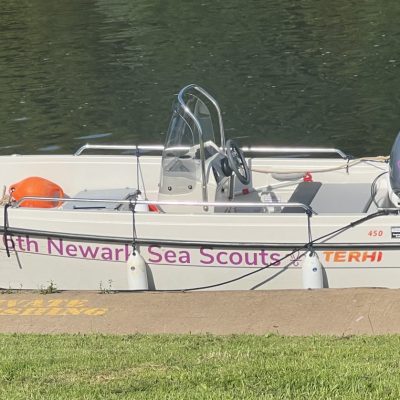
And get 10% off straight to your email!
Remember Me
Insert/edit link
Enter the destination URL
Or link to existing content
Northpoint Water, Camber Road, Camber, Rye, East Sussex, TN31 7QS //
- RYA Instructor Courses

[email protected]
01797 225238, rya powerboat level 2.
The RYA Powerboat Level 2 (PB2) qualification shows you how to safely drive a powerboat.
Whether you are undertaking an RYA qualification and need the certification, buying your own boat or just want some fun on the water this course will show you how to maneuverer a powerboat in a safe manor and teach you all aspects of driving a powerboat at sea.
- Launching and recovery of a powerboat
- Boat handling
- Securing to a buoy (picking up a mooring buoy)
- Man overboard
- Planning high speed turns
- Low speed manoeuvres
- IRPCS (International Regulations for the Prevention of Collisions at Sea)
- Chart plotting
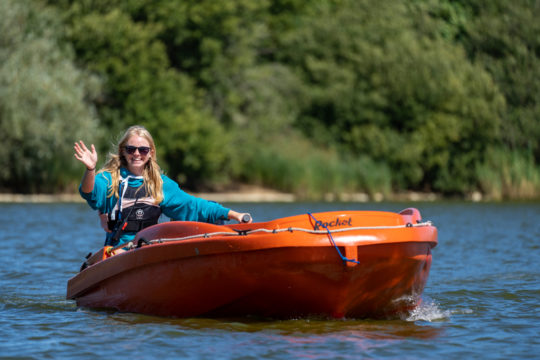
Please check out our booking portal for dates, alternatively Contact us for more dates or to arrange a private lesson.
Pre Requisites:
Certificate.

COMMENTS
Powerboat Level 2. None. May be preceded by Level 1 Start Powerboating. All you need to know for self-sufficient powerboating at a basic level. Course includes launching, mooring, anchoring and recovery plus all the boat driving skills required for basic competence in a powerboat. 2 day course or shorter assessment for experienced drivers (half ...
Level 2 Powerboat Handling. Provides the skills and background knowledge needed by the competent powerboat driver and is the basis of the International Certificate of Competence. It aims to teach boat handling and seamanship in powerboats. It focuses on low speed close quarters handling, man overboard recovery, an introduction to driving at ...
This two-day course builds upon Level 2 Powerboat Handling skills, focussing on short-handed operations, passenger safety and comfort. ... If you need a powerboat qualification for work, you might need a commercial endorsement. Find out more about professional qualifications and what it takes to work on the water.
The Royal Yachting Association (RYA) National Powerboat Scheme is for drivers of craft up to 33ft (10 metres), without a galley or toilet on board. These qualifications are recognised around the world and can be beneficial if you're looking to drive commercially. You do not need any prior knowledge of boat handling to join this Level 2 course.
Powerboat Level 2. None. May be preceded by Level 1 Start Powerboating. All you need to know for self-sufficient powerboating at a basic level. Course includes launching, mooring, anchoring and recovery plus all the boat driving skills required for basic competence in a powerboat. 2 day course or shorter assessment for experienced drivers (half ...
Marianne shows you what's involved in achieving the RYA Powerboat Level 2 qualification.Sponsored by: https://www.boatsandyachtswarranty.com In association w...
The qualification is widely recognised throughout the world. The Powerboat Level 2 (formerly known as the National Powerboat Certificate) covers everything in the RYA Powerboat Level 1 and a lot more. ... The RYA Powerboat Level 2 course is suitable for a wide range of people, from beginners wanting to gain skills and improve confidence, to ...
About the rya powerboat level 2 course. Covering the theory and practical skills needed to become a competent powerboat driver, the course focuses on low speed close quarters handling, man overboard recovery, driving at planning speed and collision regulations. All food and accommodation is included.
If you sign up to the VHF course when you book your Level 2 then the VHF Course will be significantly discounted to only £90 (including course pack). (Usual cost is £120, you also need to pay the RYA Fee which is £70). Alternatively you can choose the Online version of the VHF course for £70 - you will still need to come in for the ...
RYA Level 2 Powerboat Handling. Provides the skills and background knowledge needed by the competent powerboat driver and is the basis of the International Certificate of Competence. It aims to teach boat handling and seamanship in powerboats. It focuses on low speed close quarters handling, man overboard recovery, an introduction to driving at ...
The RYA Powerboat Level 2 Certificate is a formidable tool in the captain's toolkit, enriching them with a range of essential proficiencies that transcend the conventional roles of steering and anchoring, and is needed to become a yacht captain. This certification instils in yacht captains the confidence and aptitude to proficiently manage ...
Powerboat Level 2 Certificate Outcome: Apart from providing a strong base upon which powerboat handling skills can be built, the powerboat level 2 course is the basis for the ICC (International certificate of competence). A commercially endorsed power boat level II certificate can be used to transport guests and passengers, in tenders up to 10m ...
Format - This course is based in the classroom and on the water. RYA Powerboat Level 2 Course provides the skills and background knowledge needed by the competent powerboat driver and is the basis of the International Certificate of Competence. It aims to teach boat handling and seamanship in powerboats. It focuses on low-speed close quarters ...
The RYA Powerboat Level 2 Training runs from Royal Clarence Marina in Gosport, Portsmouth and takes 2 days to complete; starting at 9:am through to approximately 5:pm daily. The maximum Student:instructor Ratio permitted is 3:1 per boat; all courses are delivered in English. On completion of the course you will be issued the RYA Powerboat Level ...
The RYA powerboat level 2 syllabus aims to provide a level of training to suit all, from casual and weekend powerboat users to commercial skippers. Once you have passed the Level 2 this will allow you to apply for the ICC (. £295 per person (Monday - Friday), £345 per person (Saturday, Sunday) / £590 with 1:1 tuition / 2 days from 9am to 5pm ...
RYA Powerboat Level 2 ICC Course Summary. From £199 In Southampton. Course Duration: 2 days - 9am to 5pm approx both days Course Cost: From £199 Course Location: Shamrock Quay, Southampton Joining Instructions: Download here Recommended Reading: RYA Start Powerboating G48 ebook (Included) Course Prerequisite & Age: Minimum Age 12 Years Under 16's Must Be Accompanied by Parent or Guardian
The qualification known as "Powerboat Level 2" is also often referred to as "Powerboat Handling Level 2." Those who have obtained their Powerboat Level 2 certification are eligible to submit an application to the RYA for their Powerboat ICC (International Certificate of Competence), which is valid for boats up to 10 metres in length.The RYA Power Boat Level 2 course is the gold ...
You will learn how to handle and drive a powerboat of up to 10 metres in length. You will cover boat handling and basic engine maintenance. You will learn about coming off and onto a dock as well as mooring and anchoring. You will also look at man overboard techniques. Finally you will look at high speed manoeuvres, including man overboard at ...
Powerboat level 2 handling (PB2) Course Duration - 2 day. Without a doubt the most popular RYA Powerboat Course in the world, the RYA Powerboat Level 2 is a two-day practical and theory course that acts as the starting point for providing all the skills and background knowledge that you need to go afloat safely, including man overboard recovery and collision regulations.
RYA Powerboat Level 2. This two day course provides a level of training that is ideal for anyone from the casual weekend user through to some commercial users. You will be taught launching and recovery, use and care of safety equipment, basic knots, fast and slow speed boat handling, use of trim, towing, man overboard, anchoring and securing to ...
RYA Powerboat Level 2 course. The Powerboat Level 2 course is an essential course for all powerboats up to 10 meters whether your preferred boat is planning or displacement, inboard or outboard, RHIB, fishing boat or speedboat. The course is run over two days with lots of hands on practice including berthing and exhilarating high speed ...
The RYA Powerboat Level 2 is widely recognised and is considered the minimum standard to operate a powerboat. ... and it is a stepping stone for further training and qualifications in powerboating and other maritime activities. There are no formal prerequisites for the RYA Powerboat Level 2 course. It is open to anyone, regardless of prior ...
The RYA Powerboat Level 2 (PB2) qualification shows you how to safely drive a powerboat. Whether you are undertaking an RYA qualification and need the certification, buying your own boat or just want some fun on the water this course will show you how to maneuverer a powerboat in a safe manor and teach you all aspects of driving a powerboat at sea.